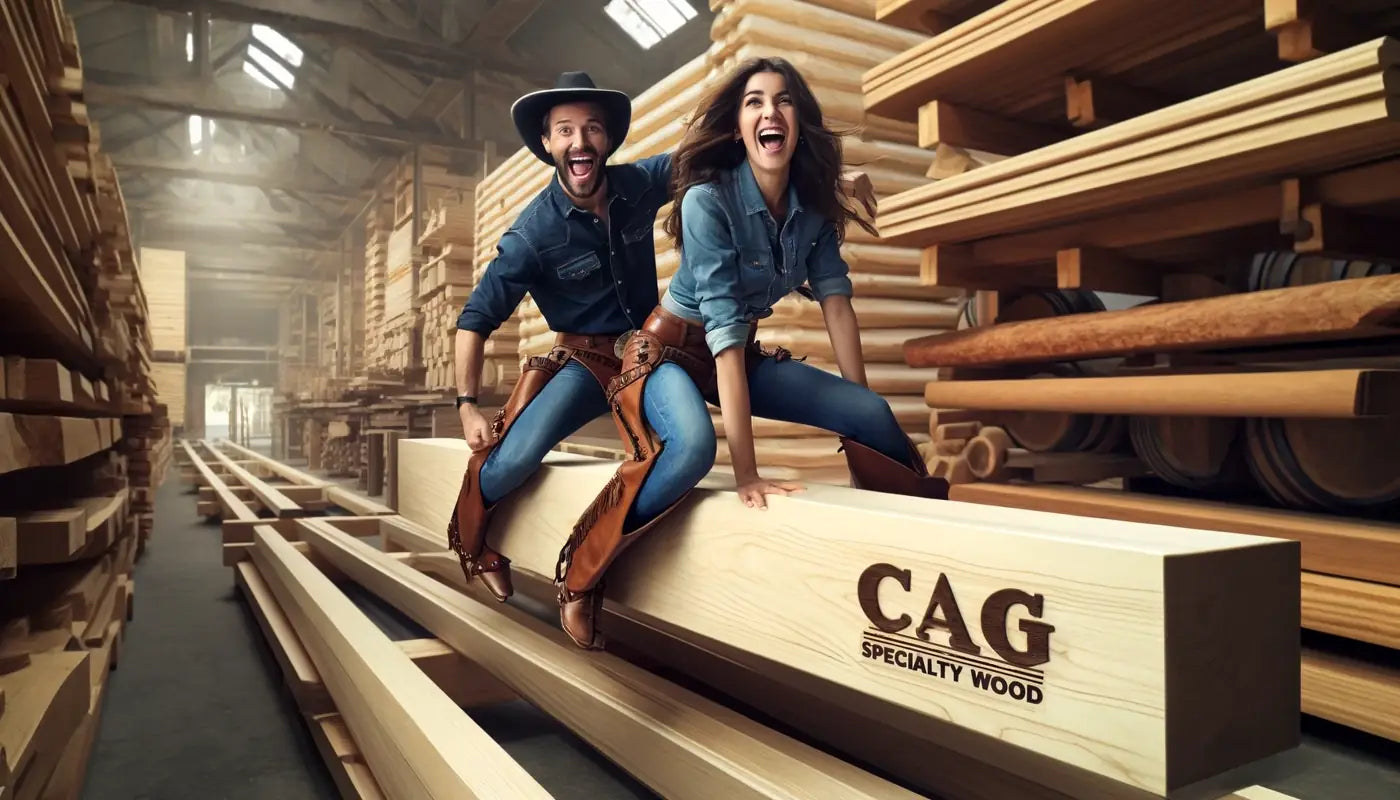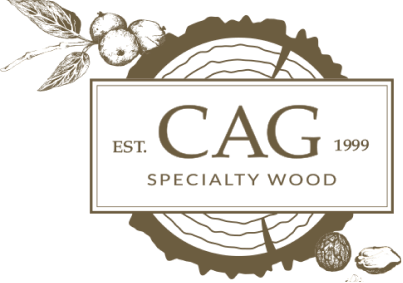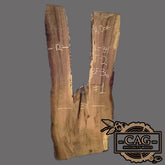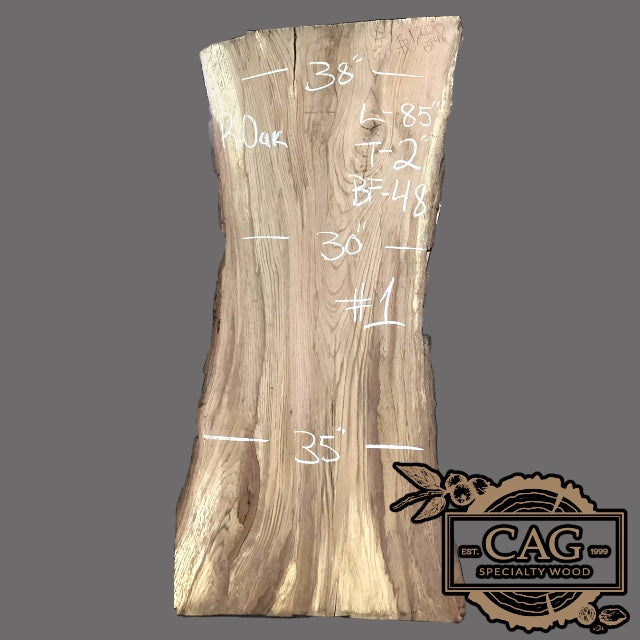
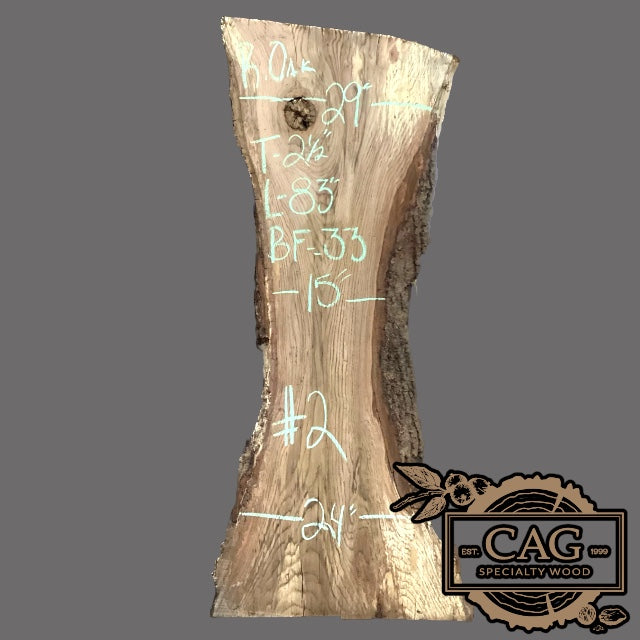
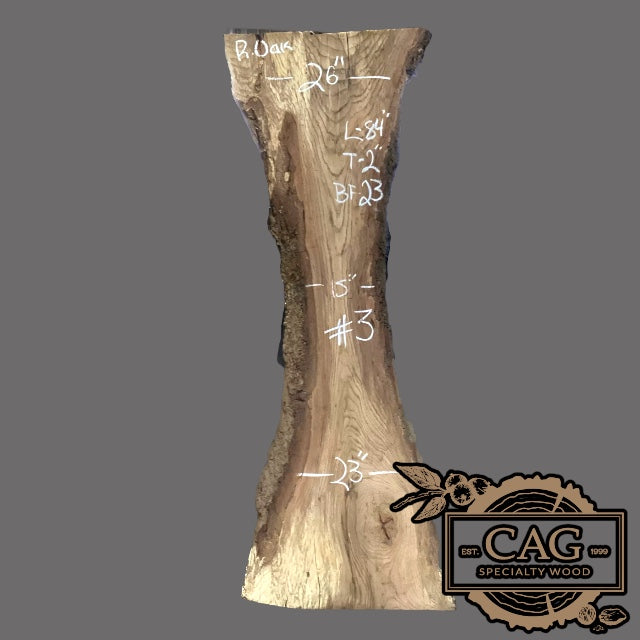
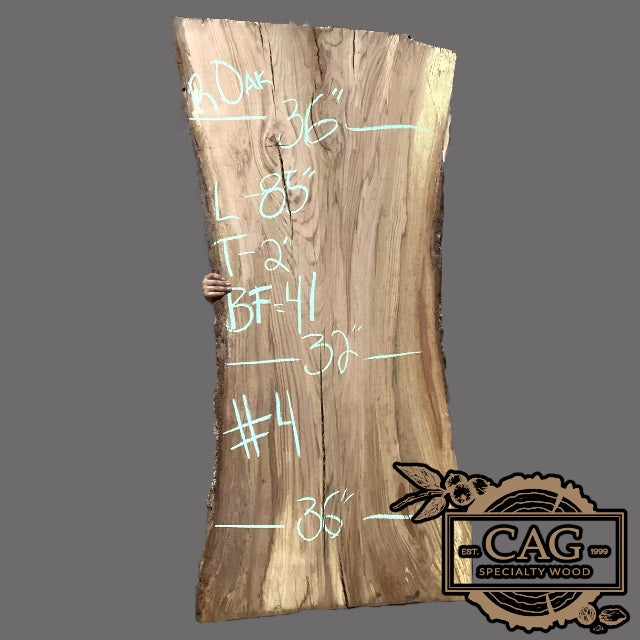
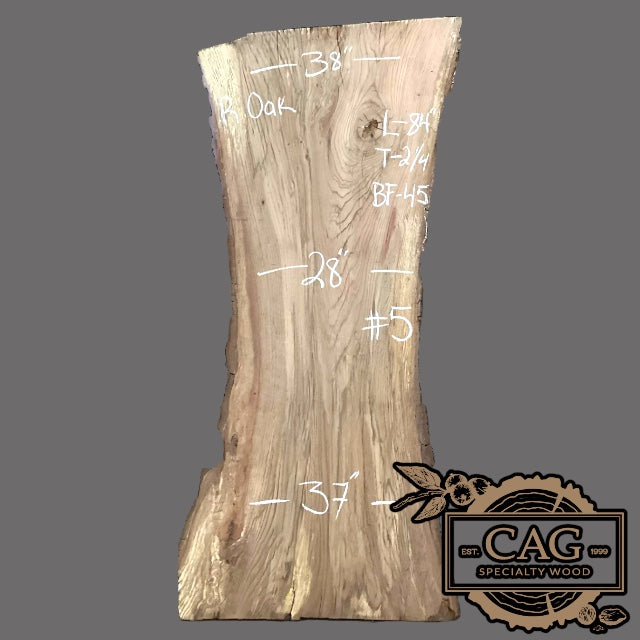
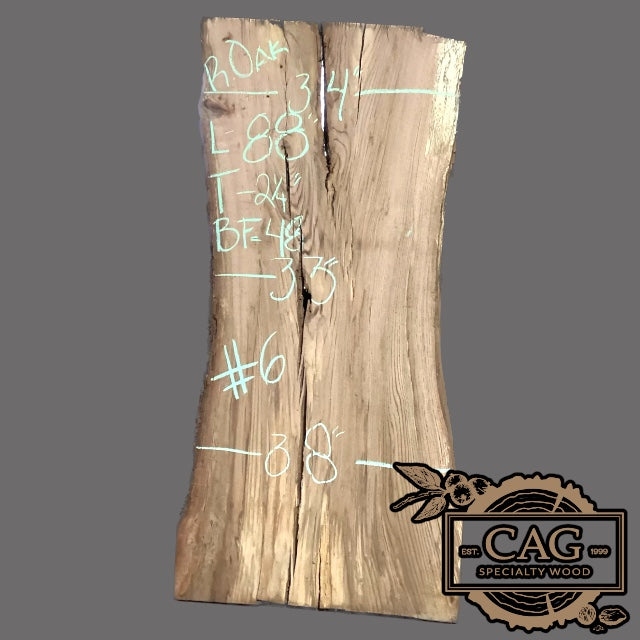
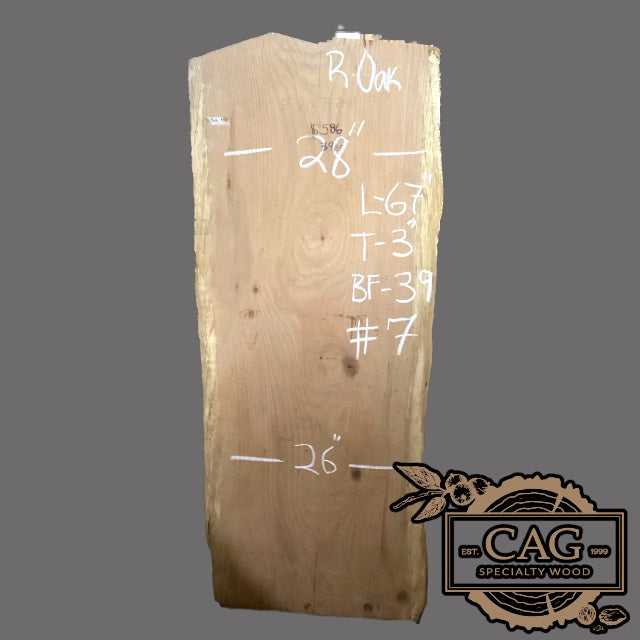
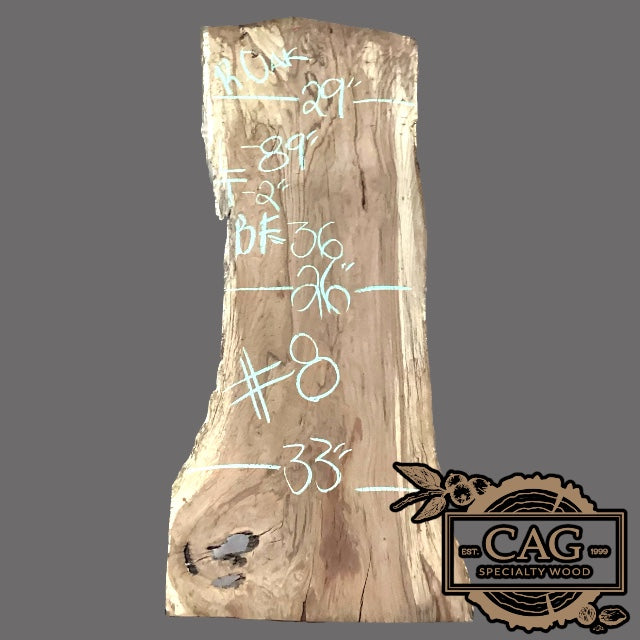
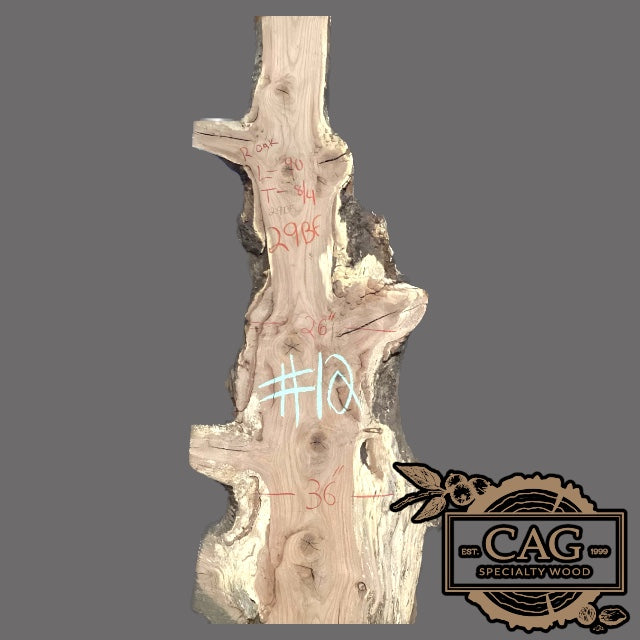
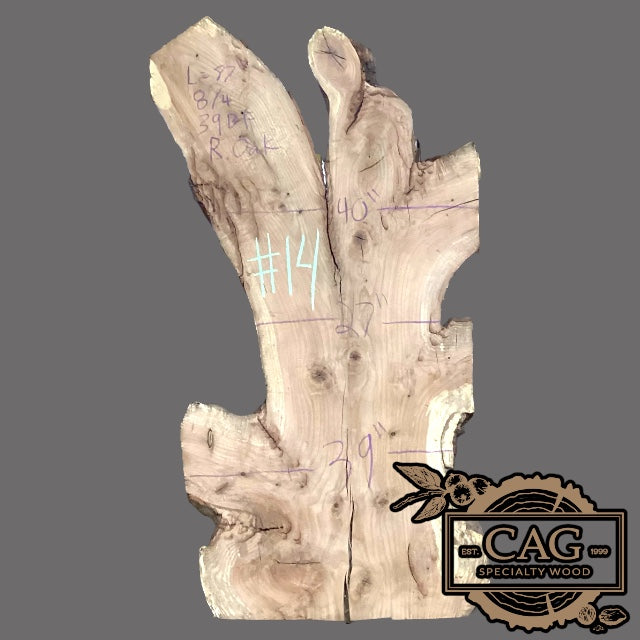
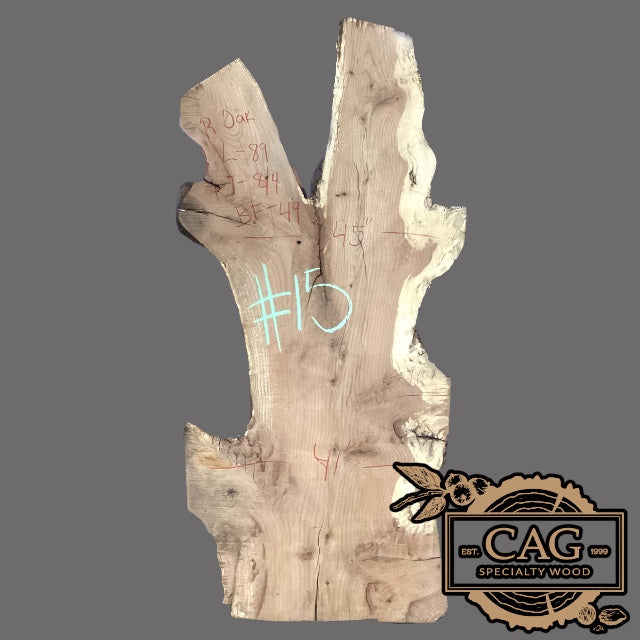
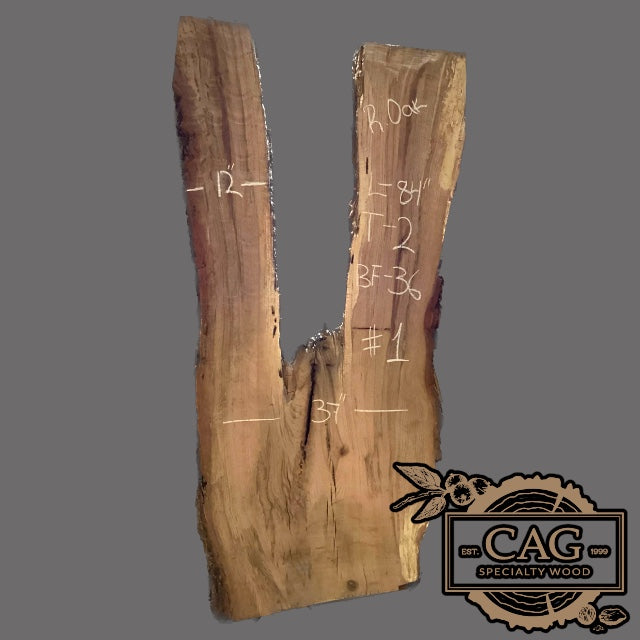
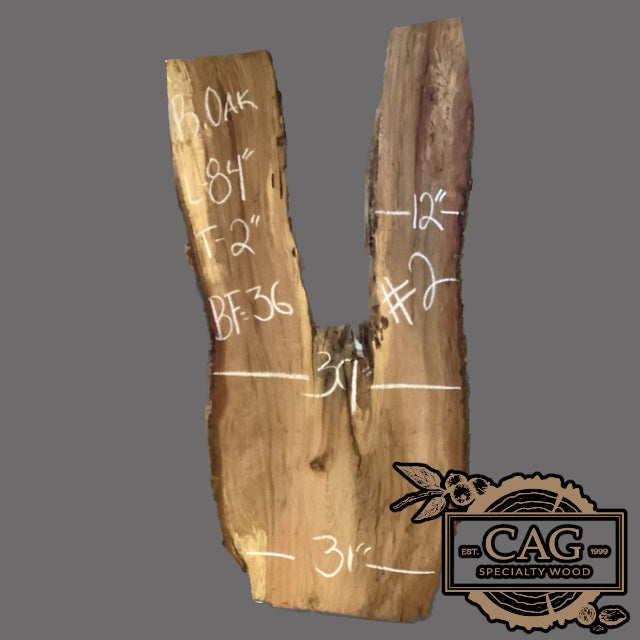
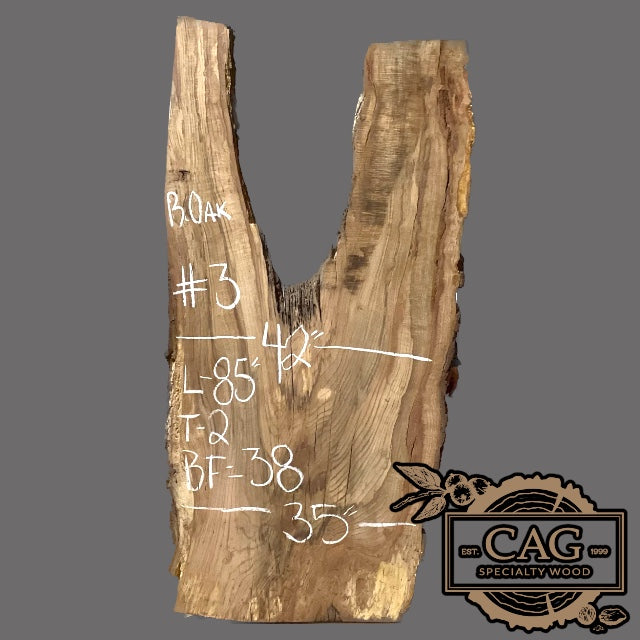
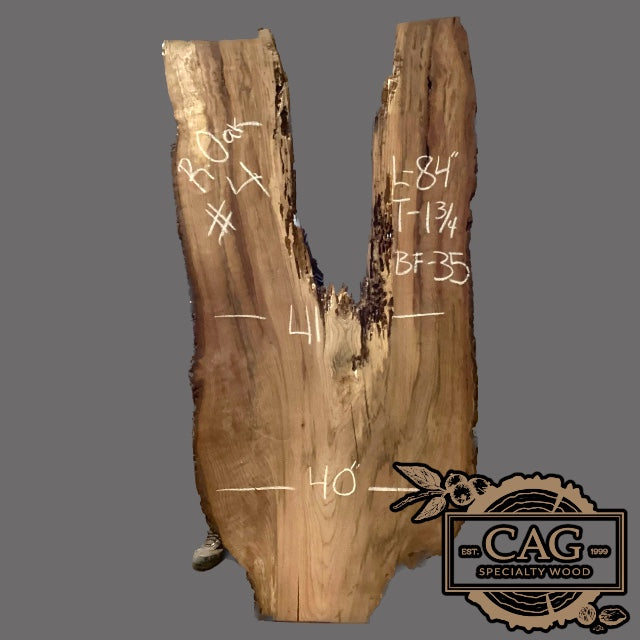
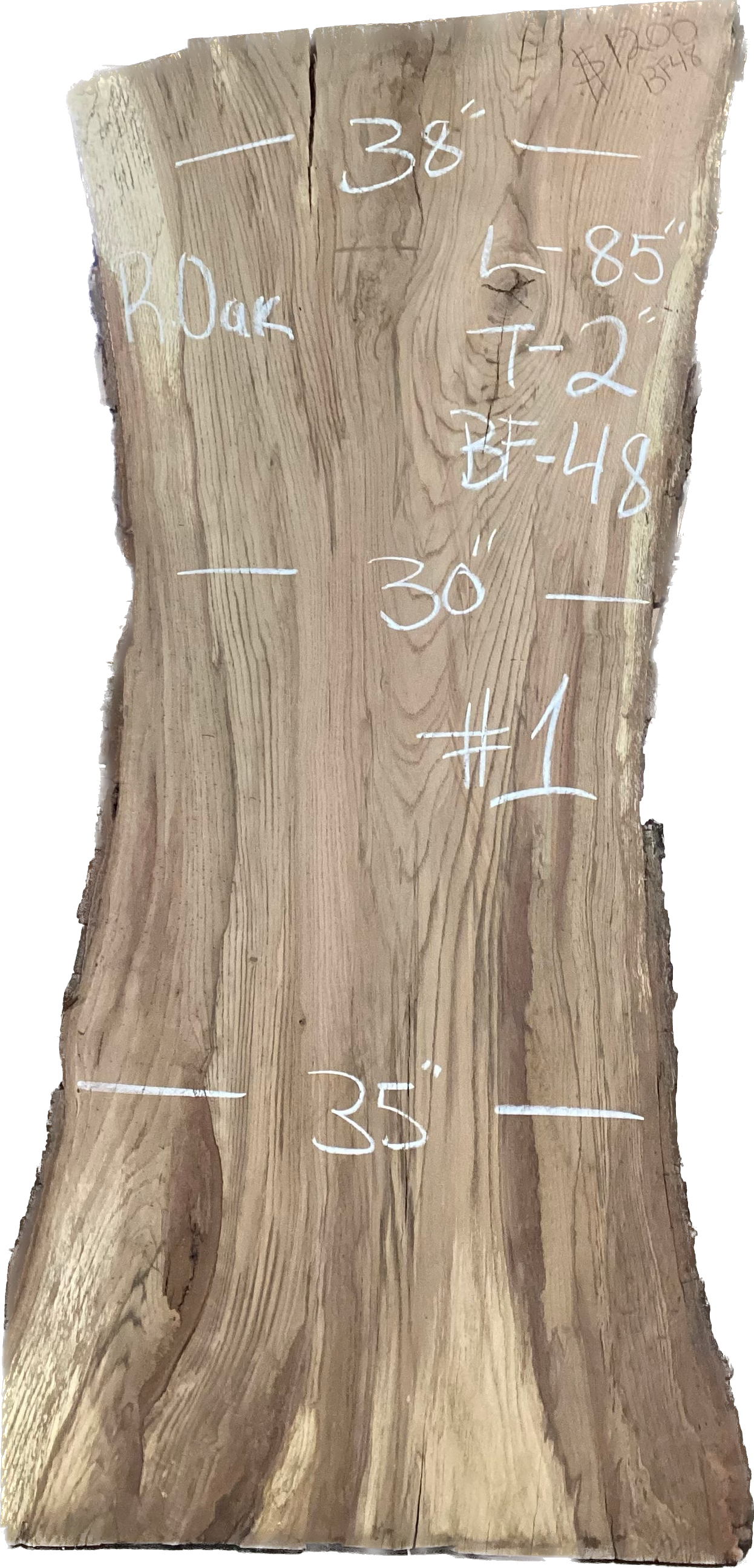
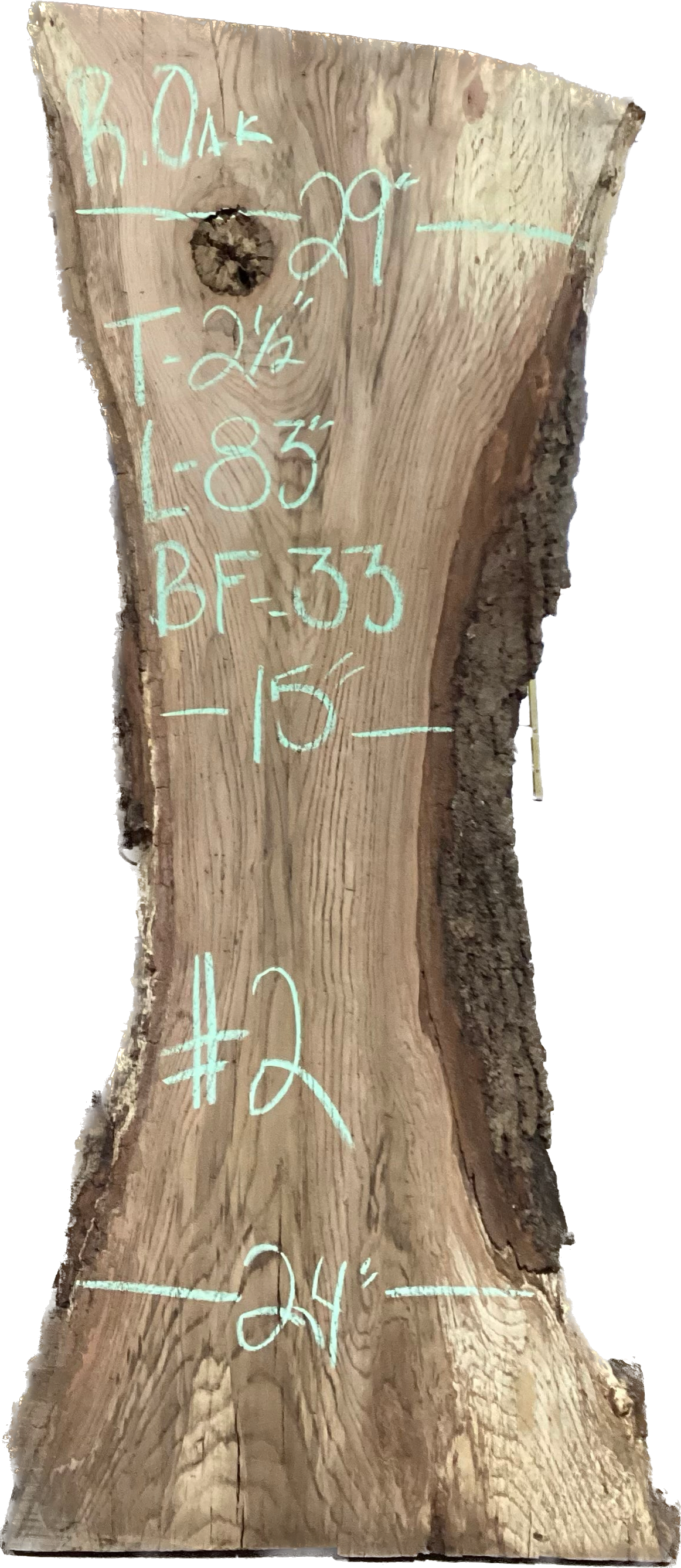
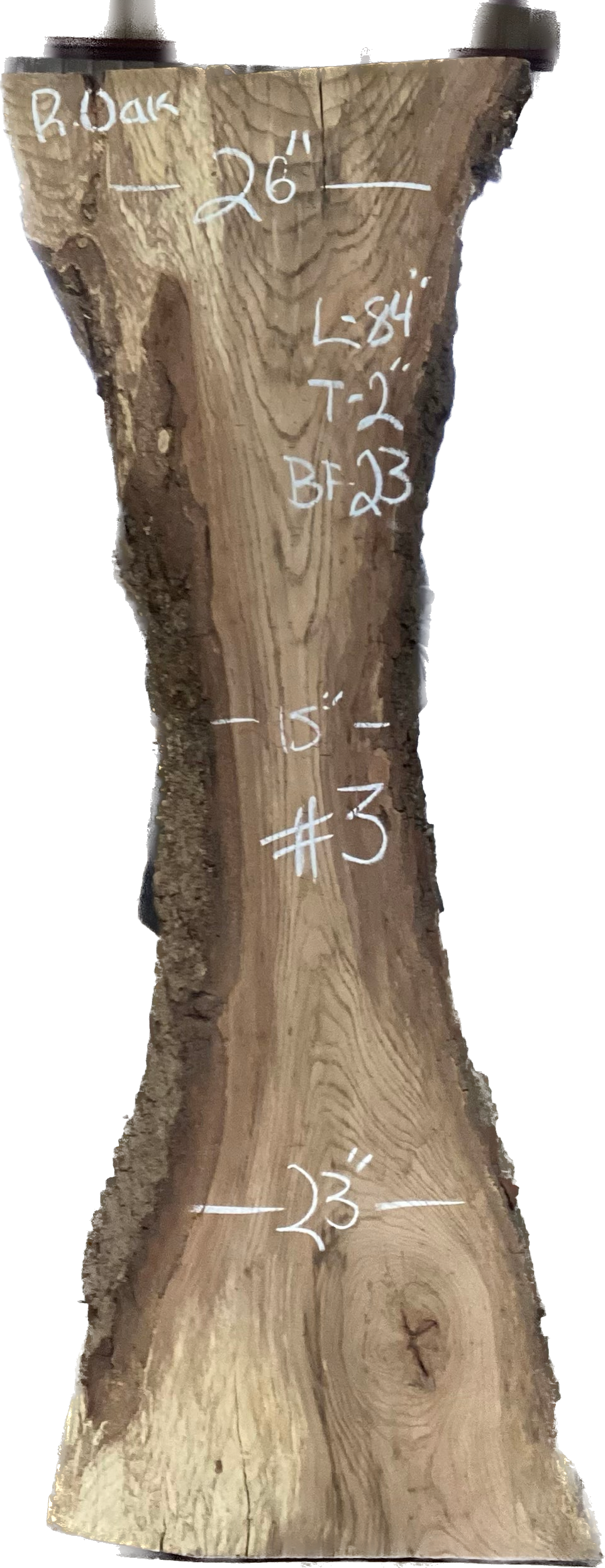
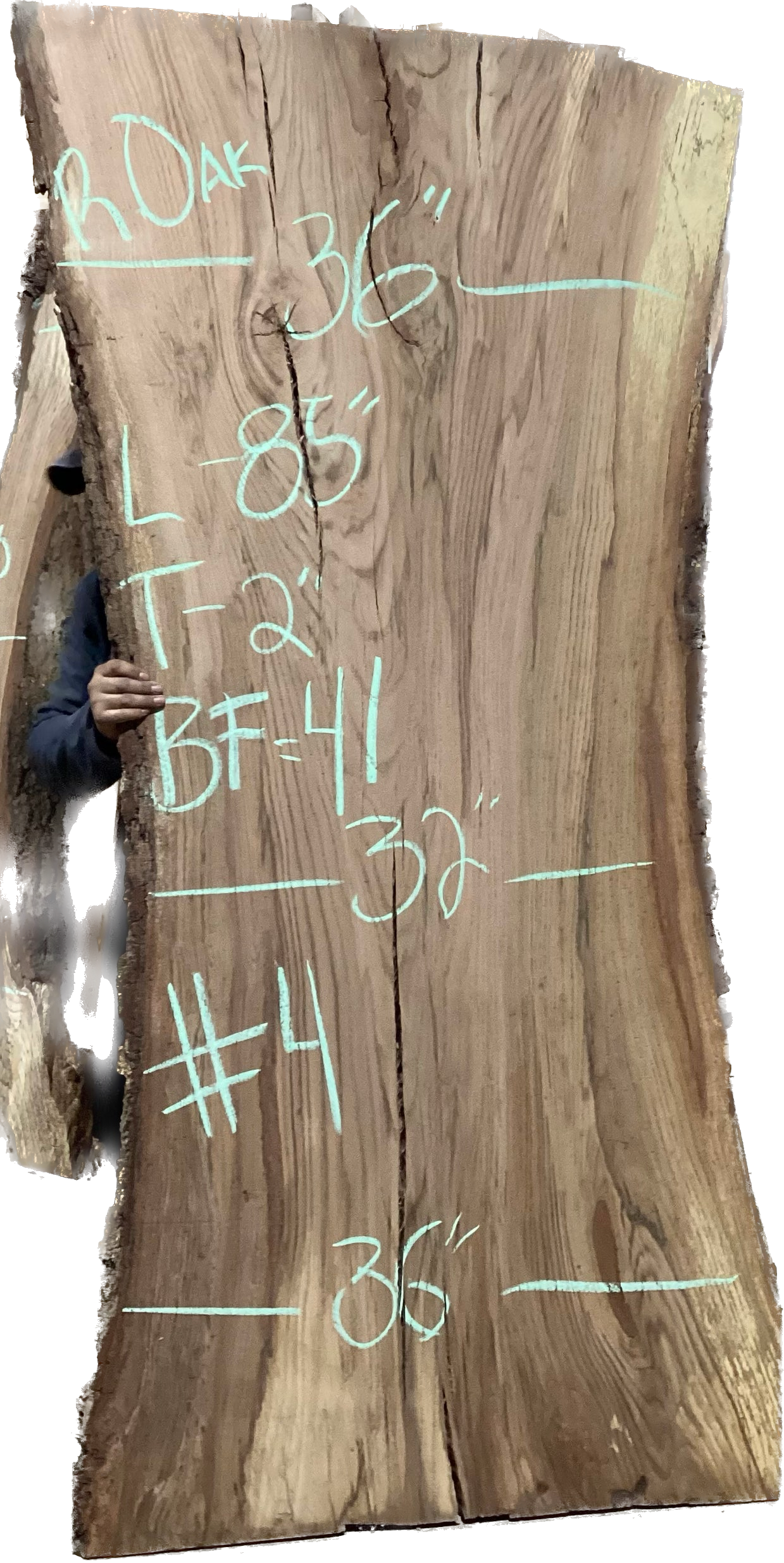
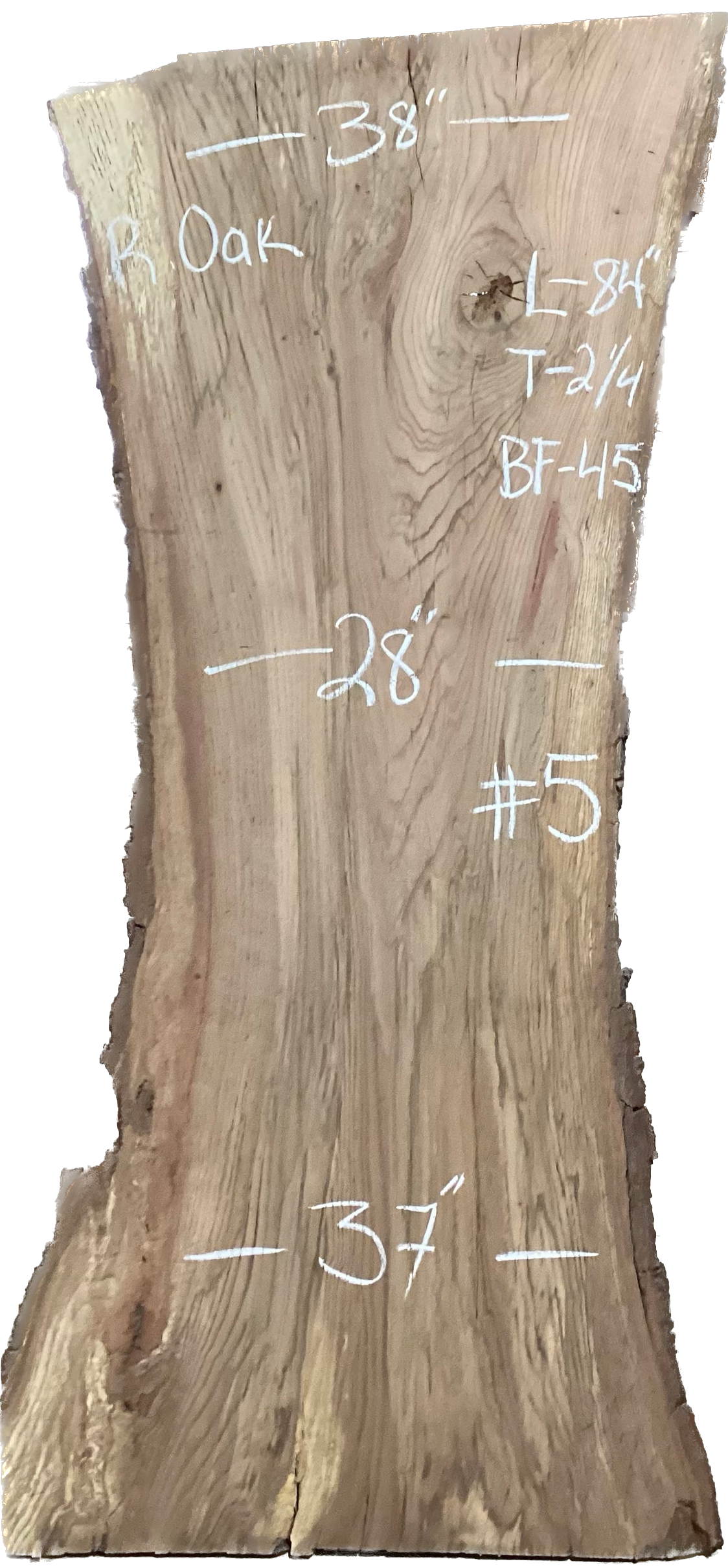
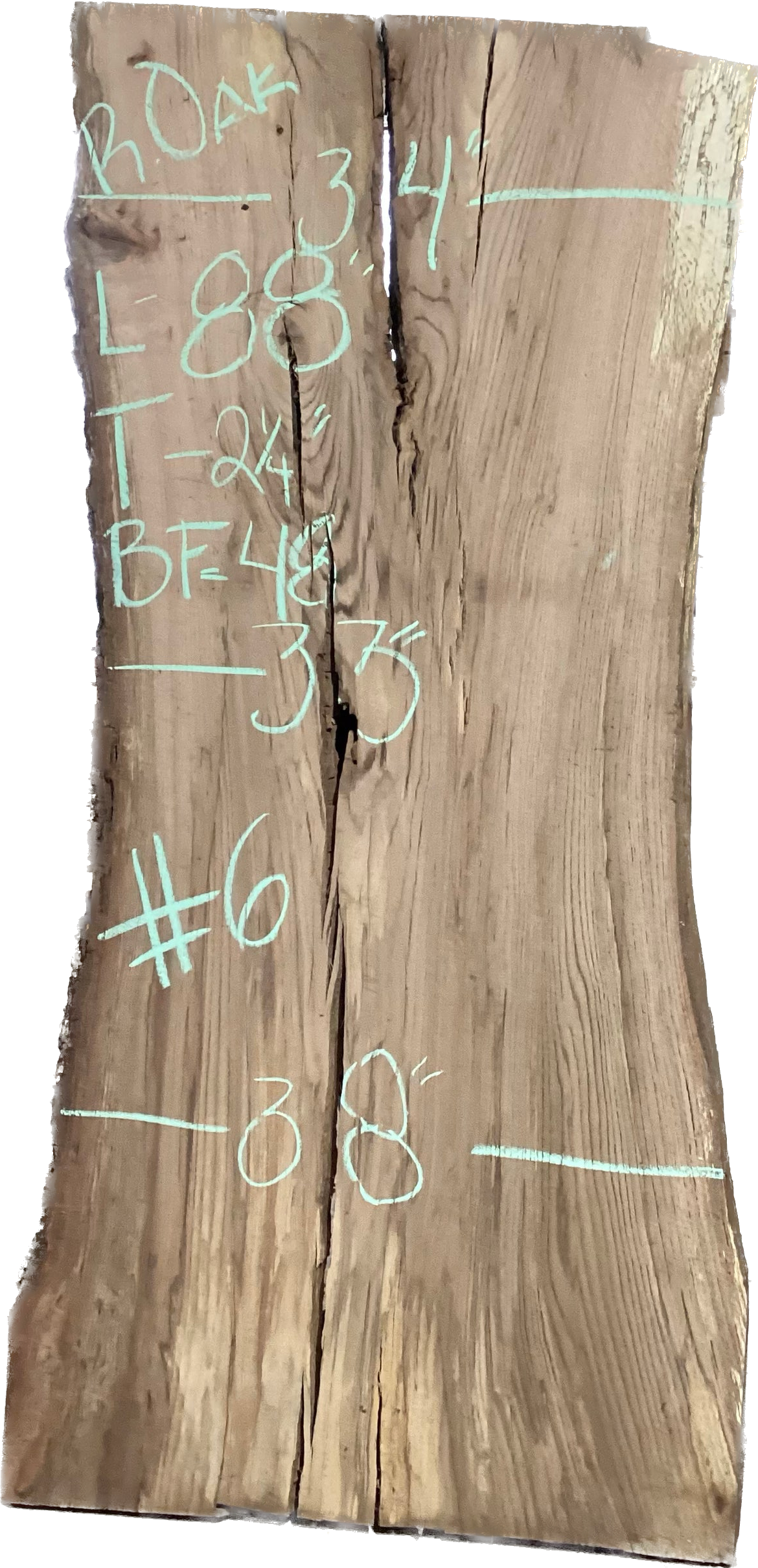
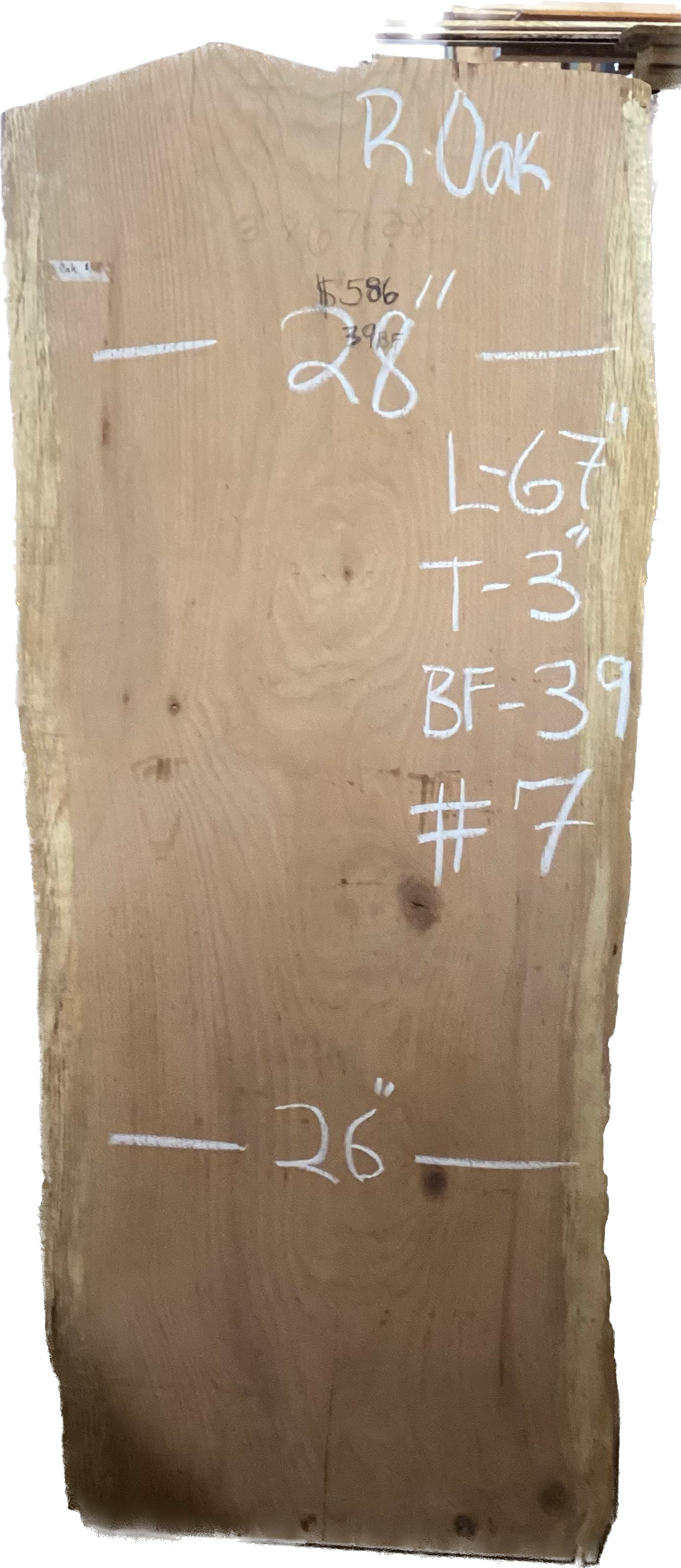
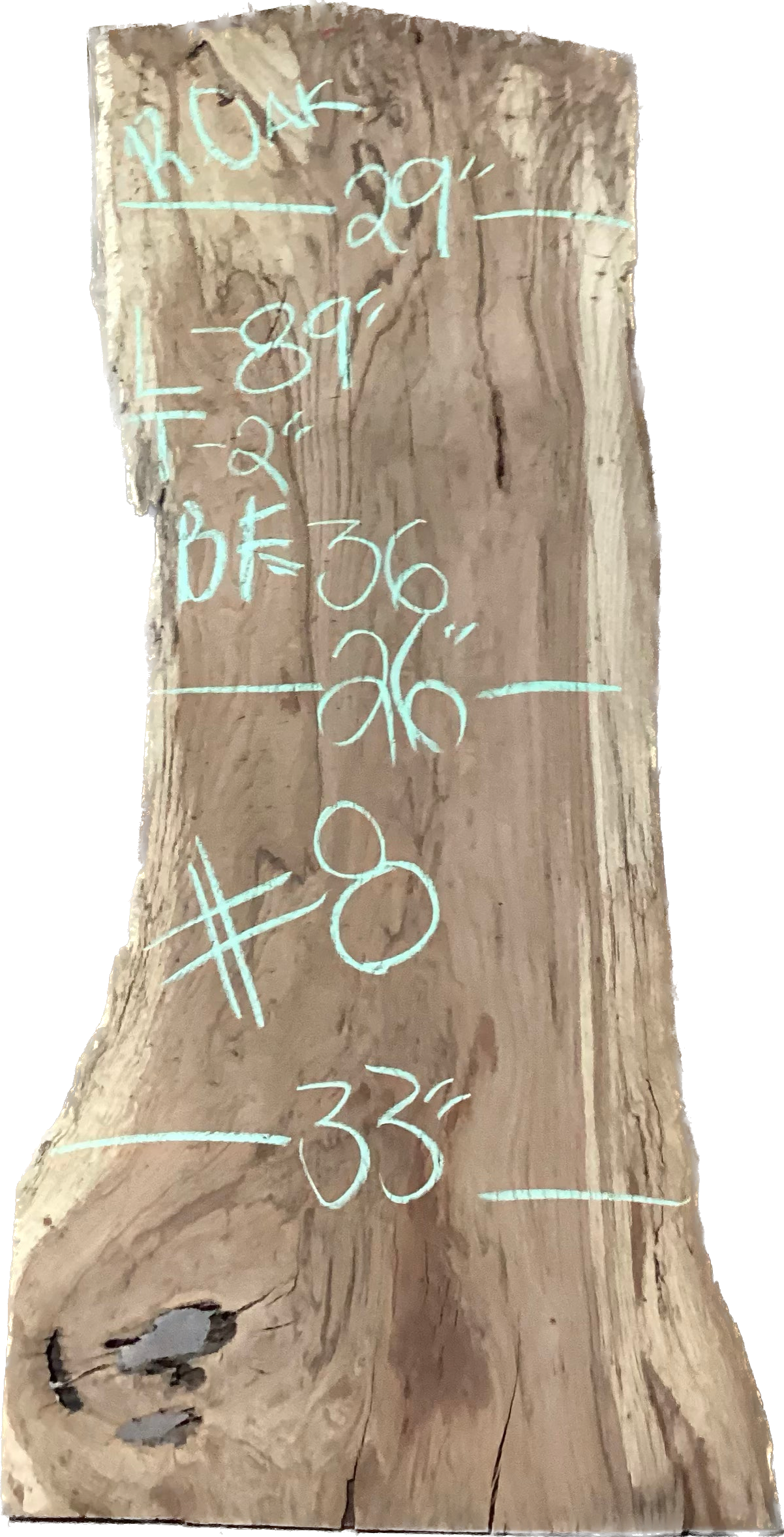
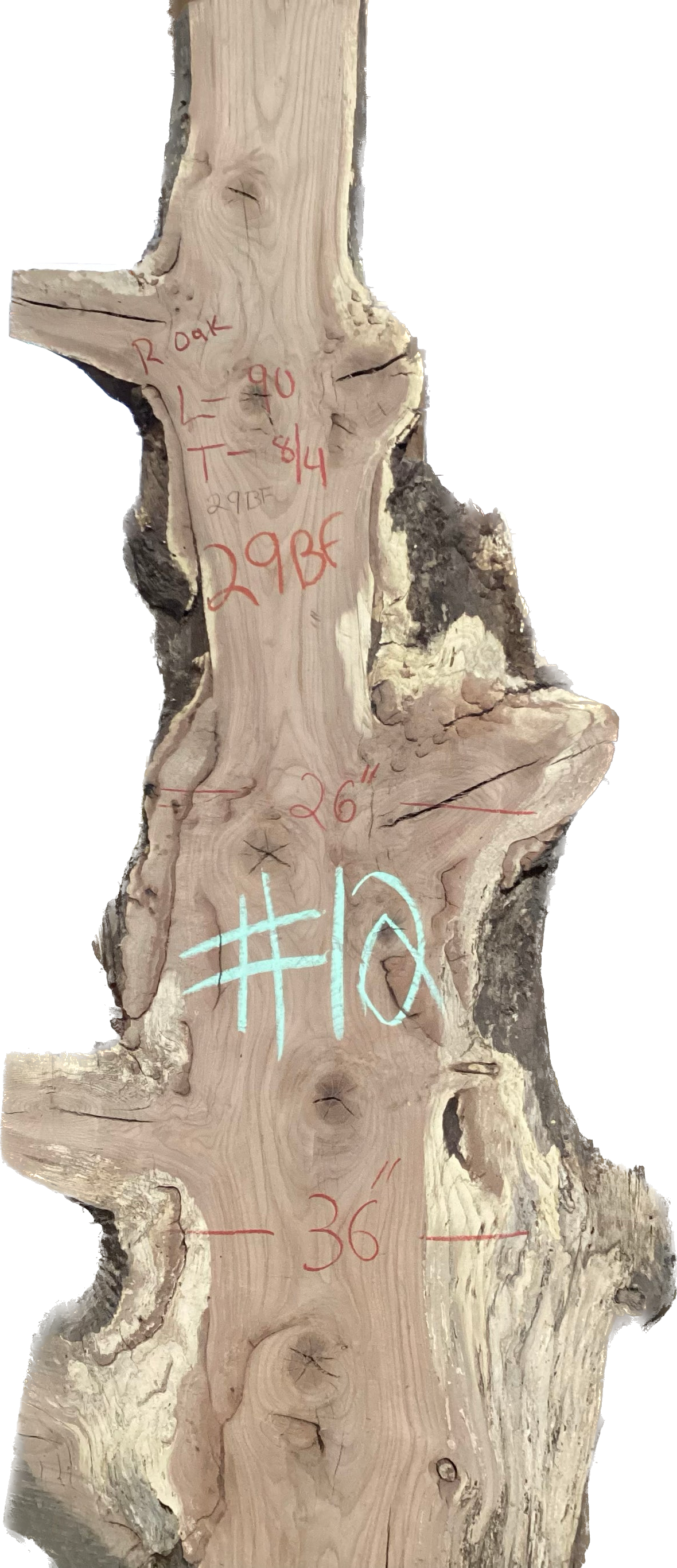
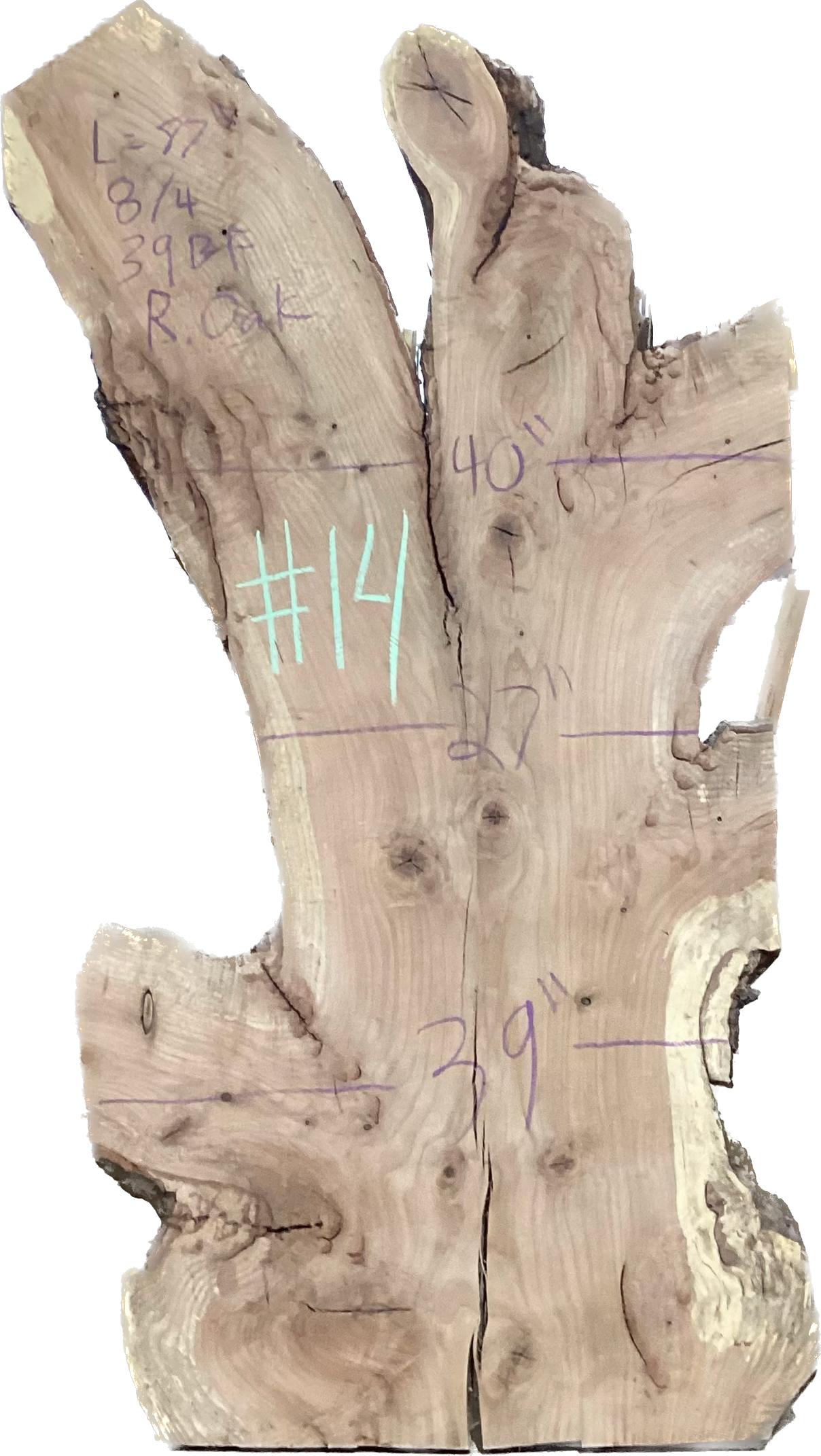
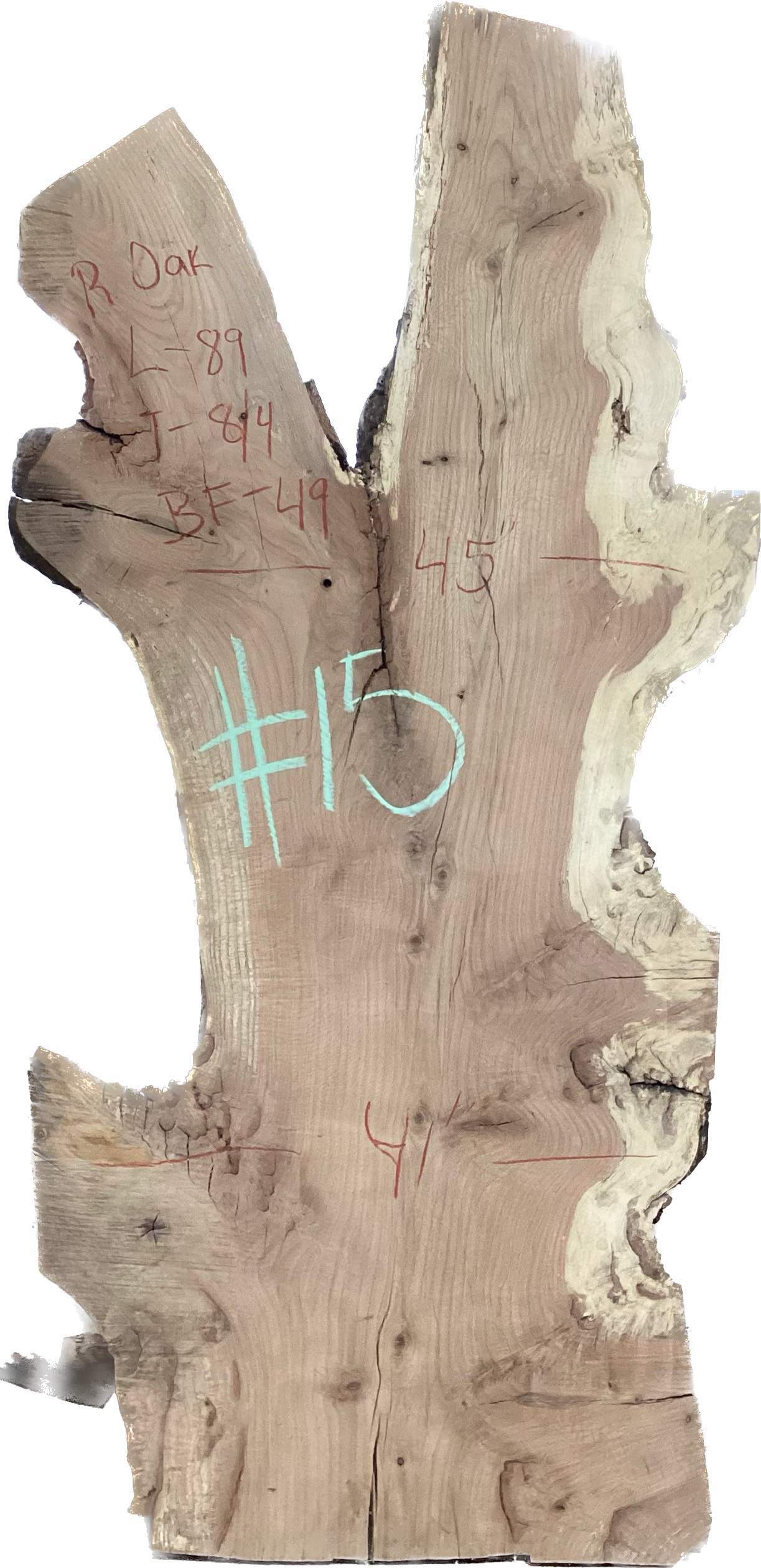
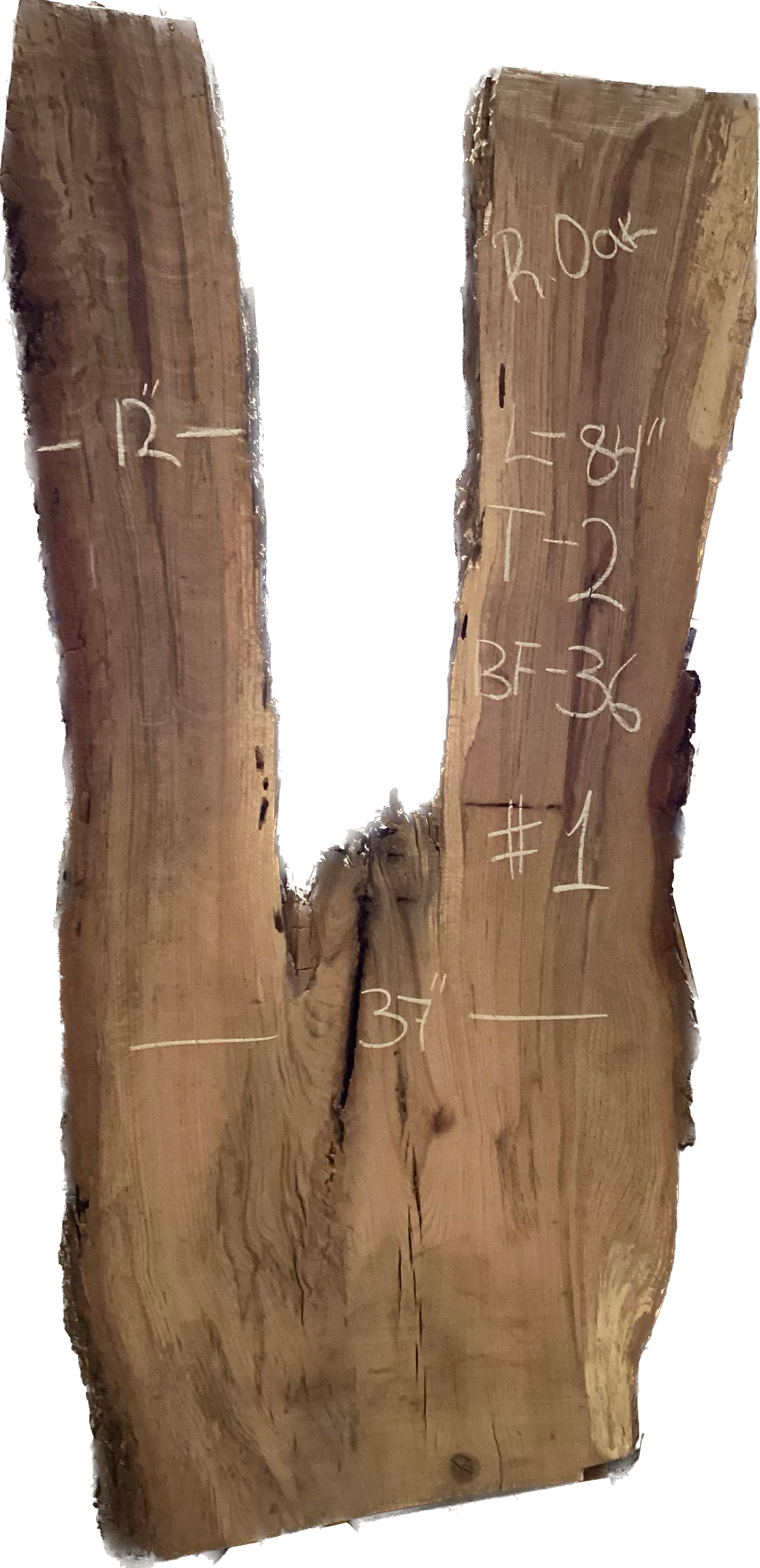
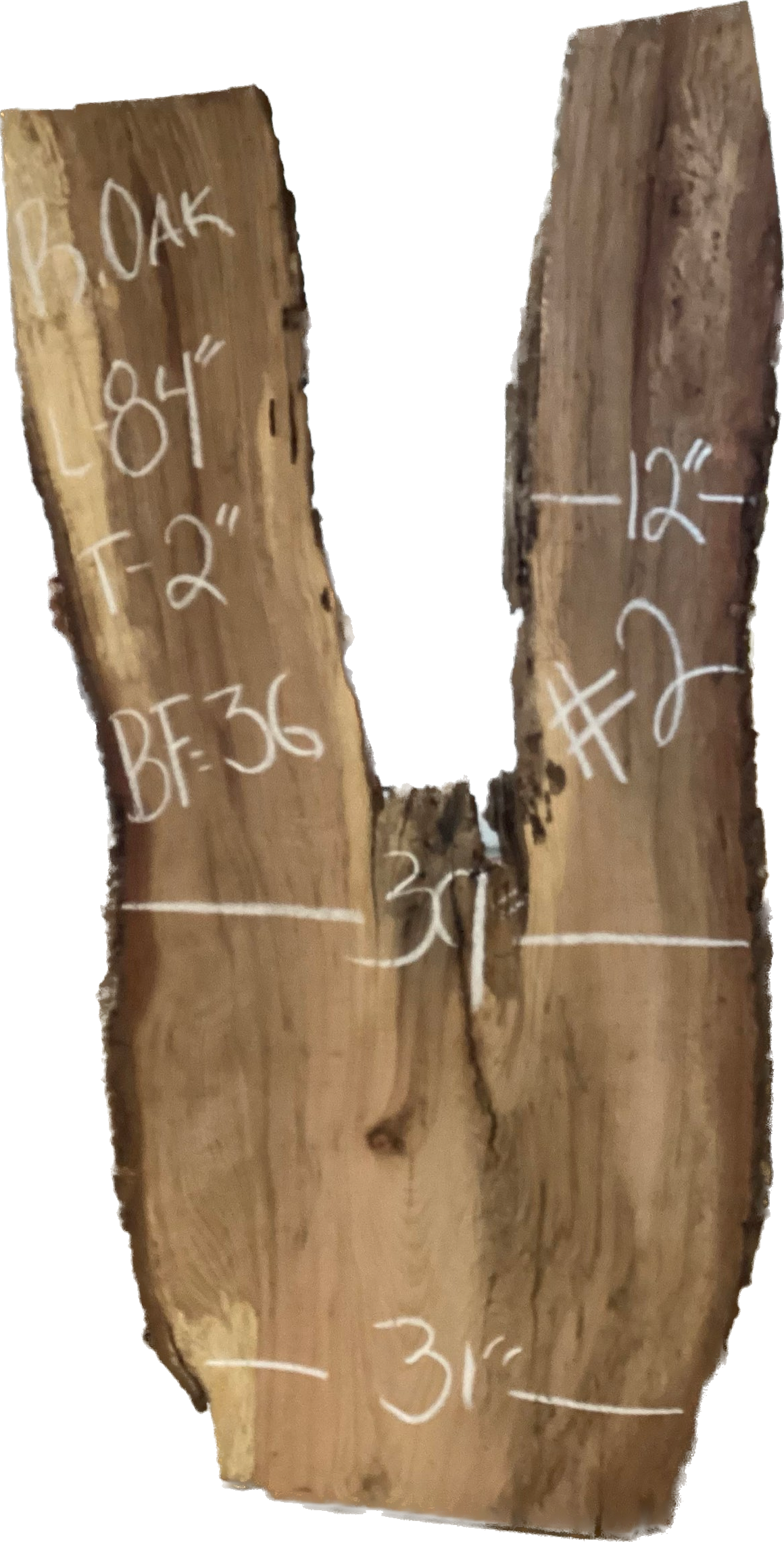
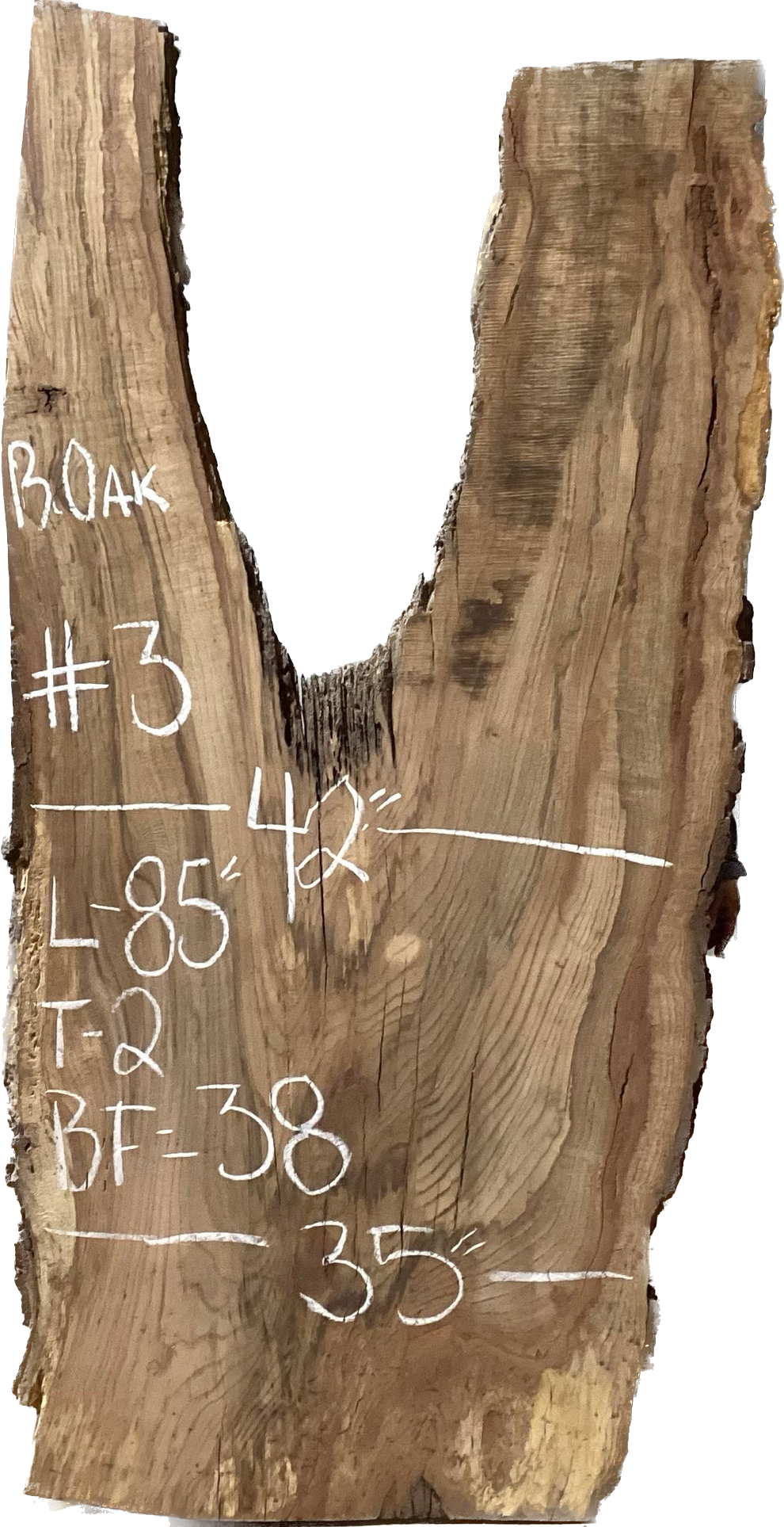
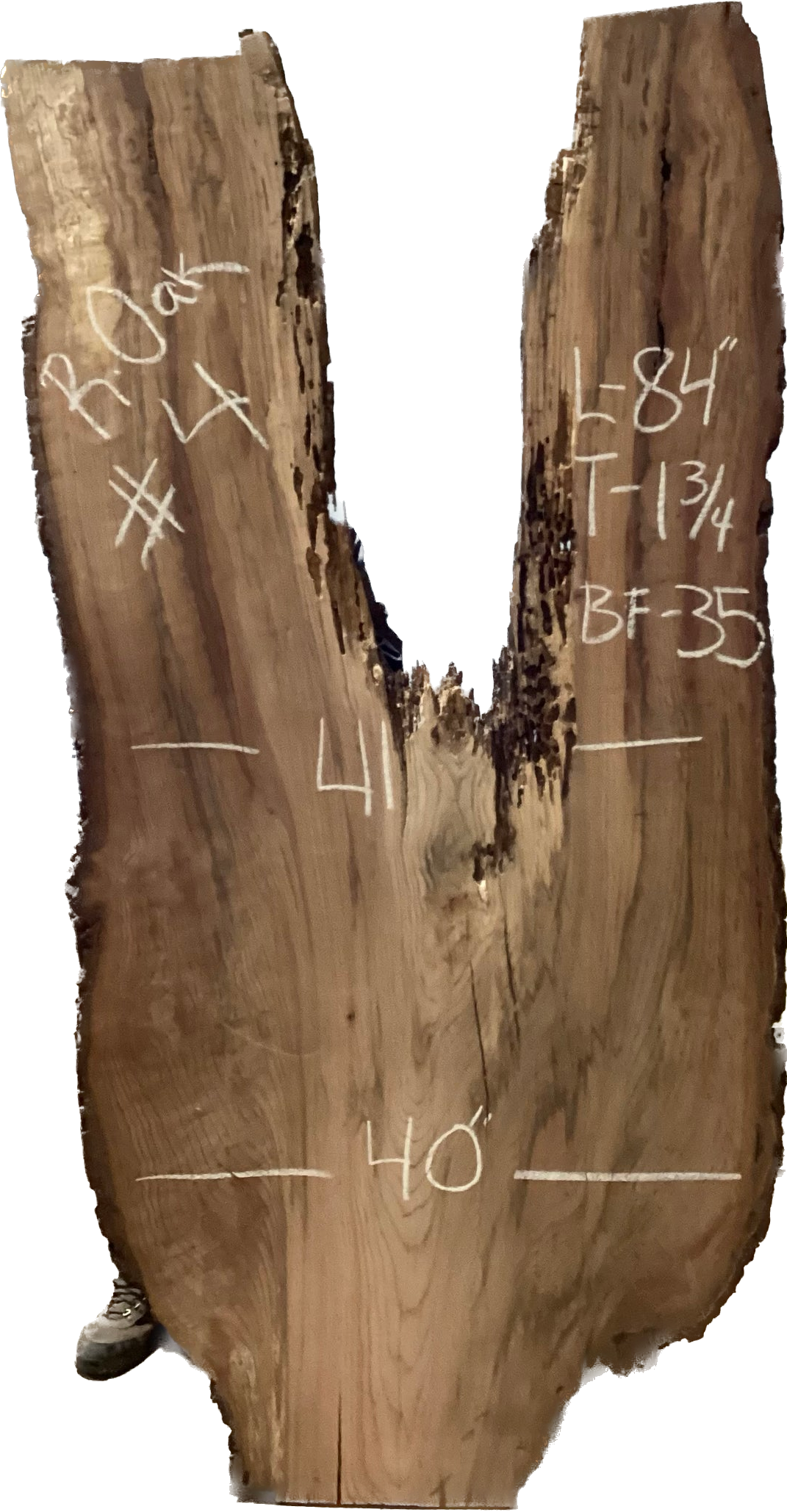
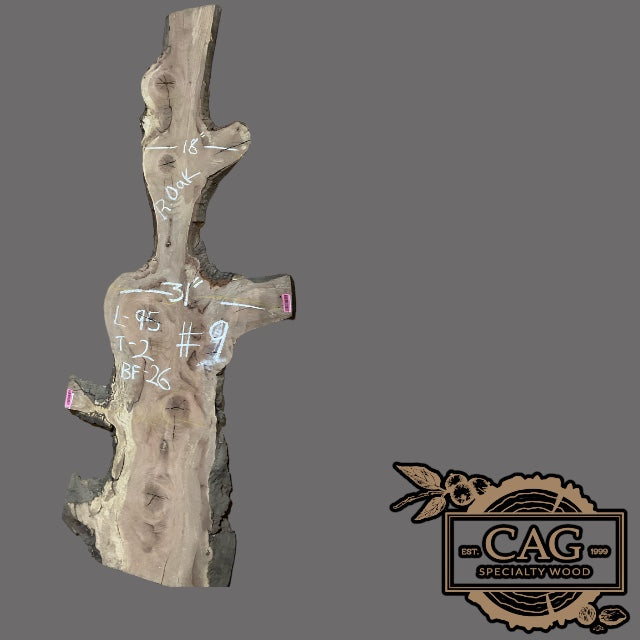
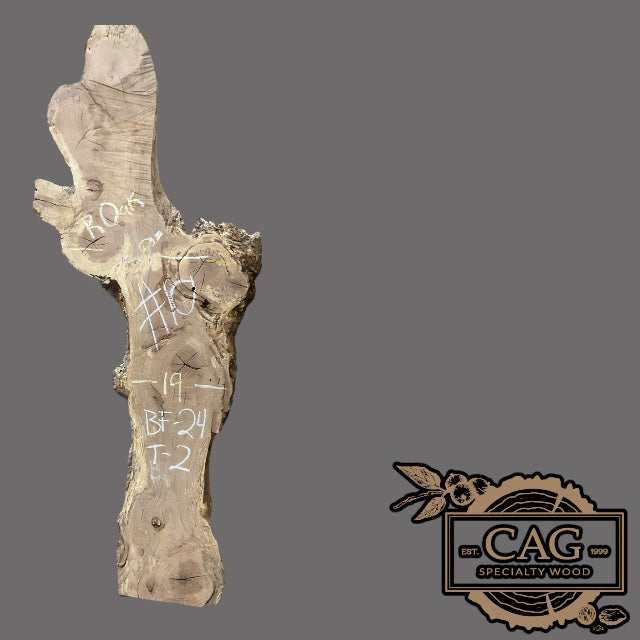
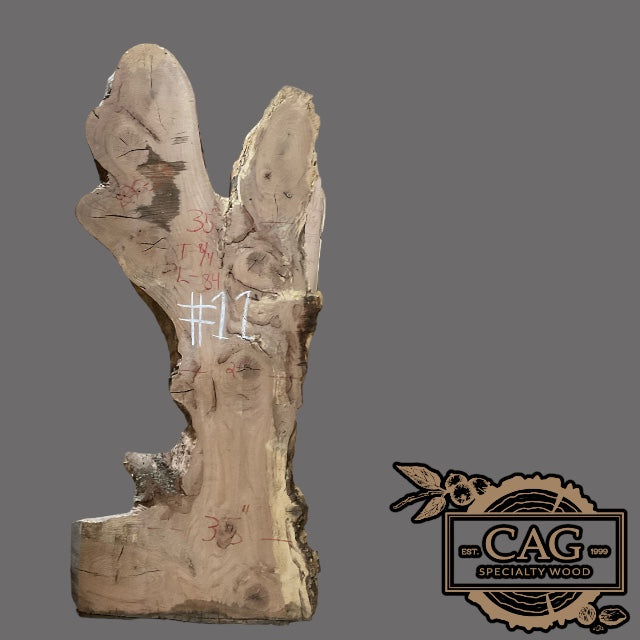
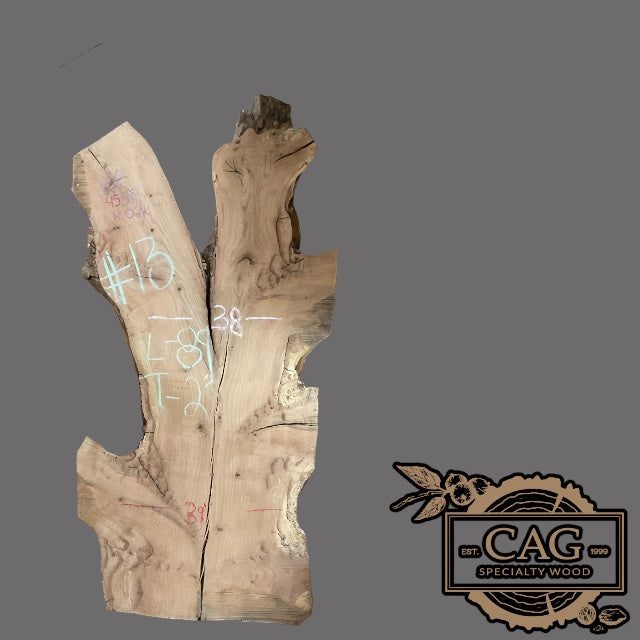
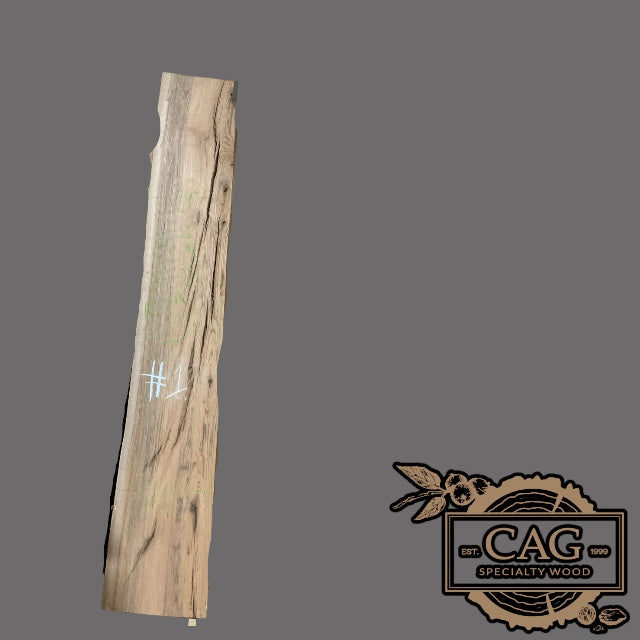
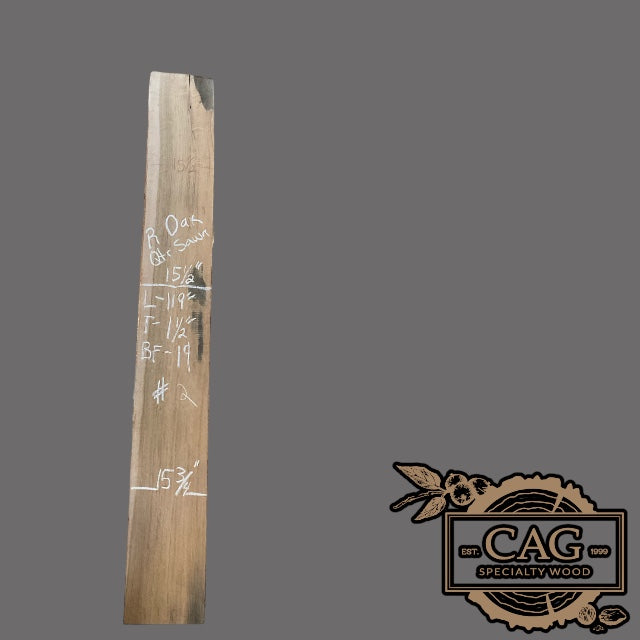
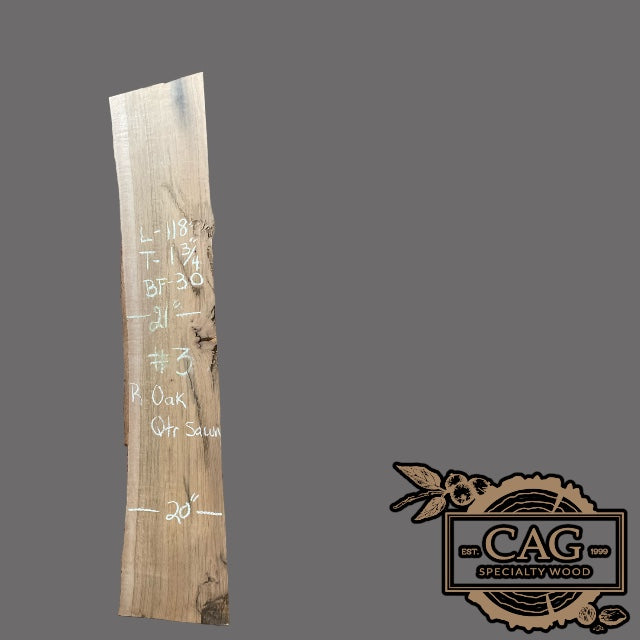
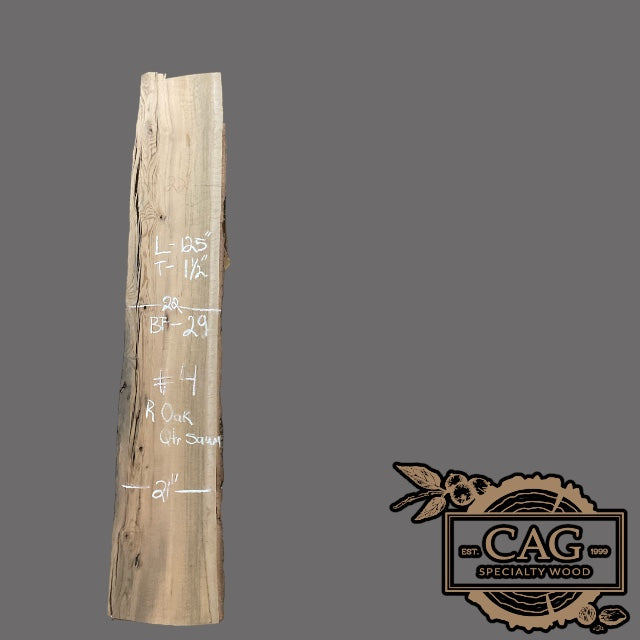
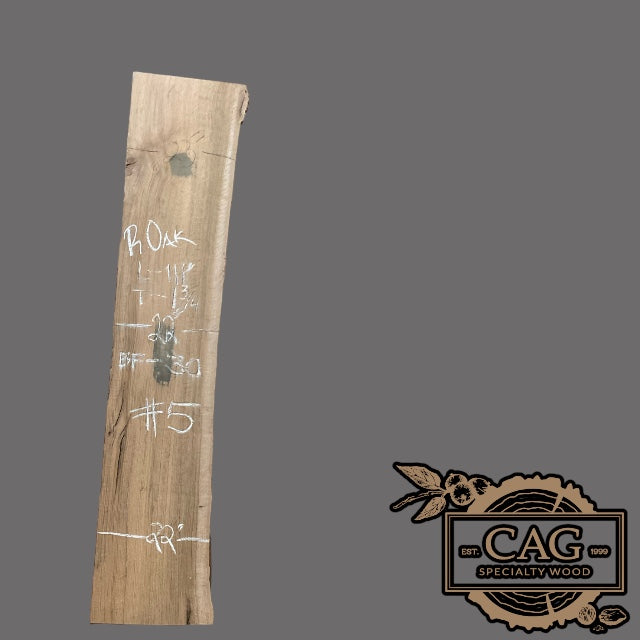
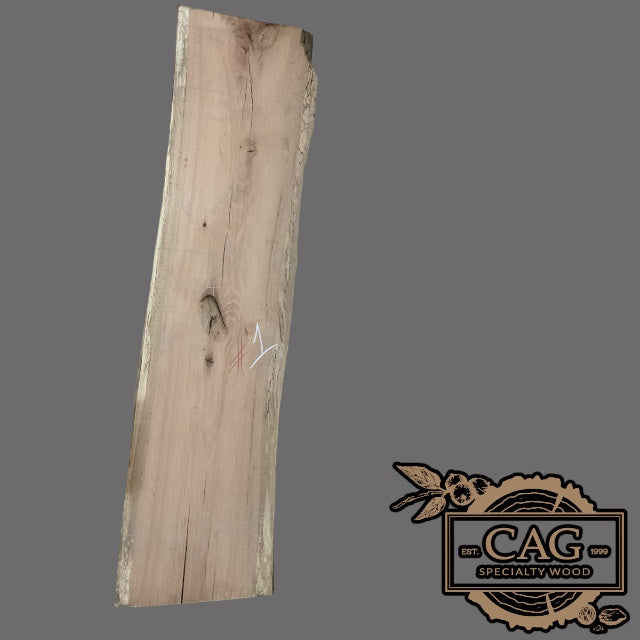
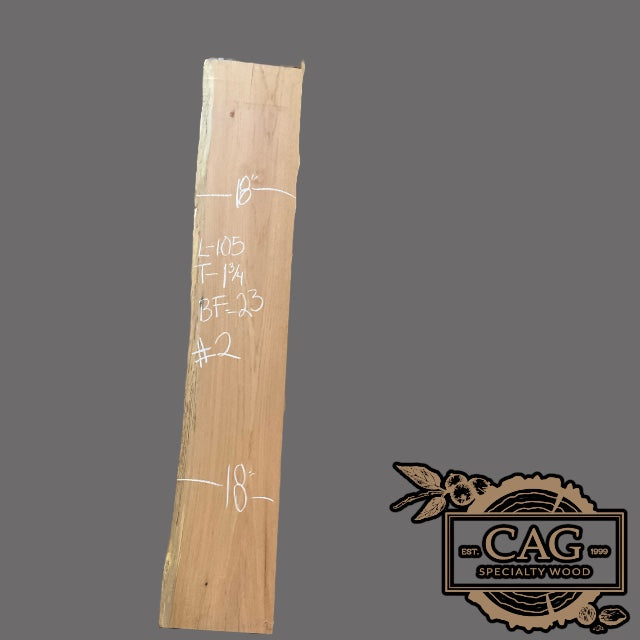
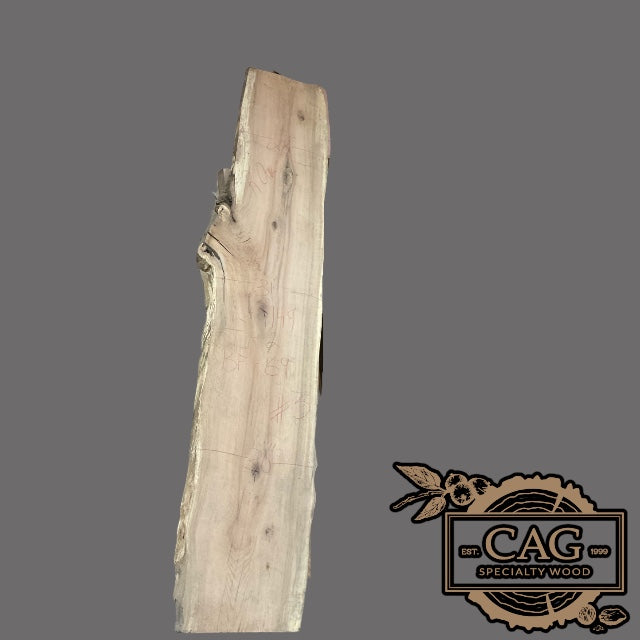
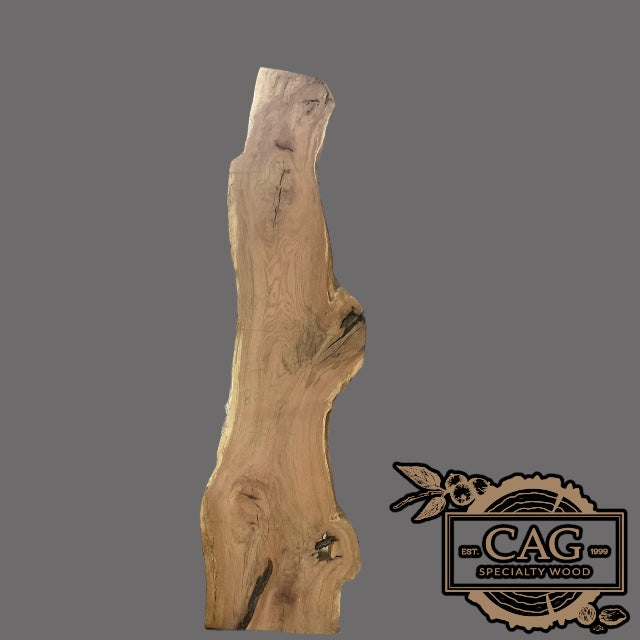
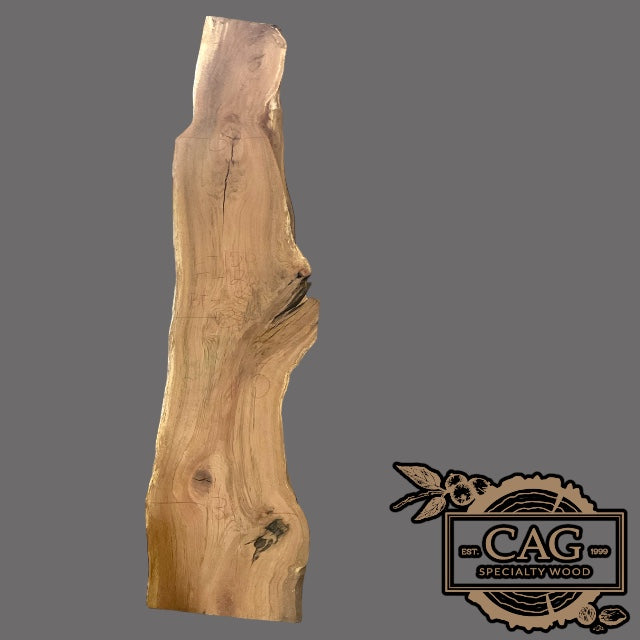
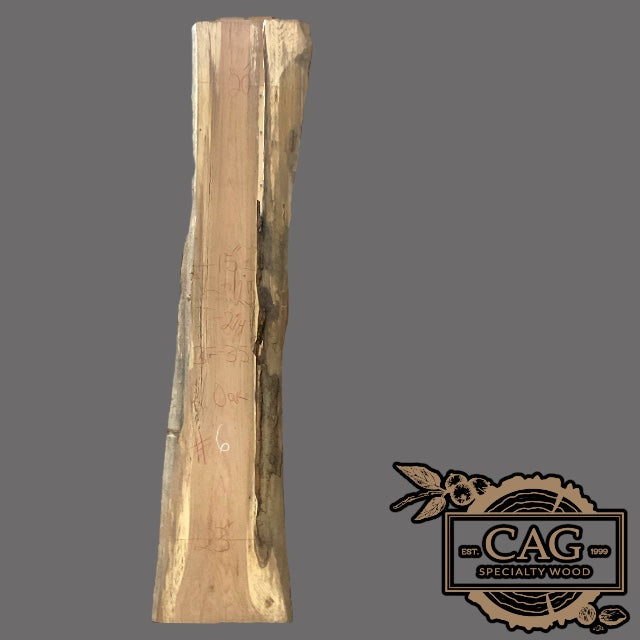
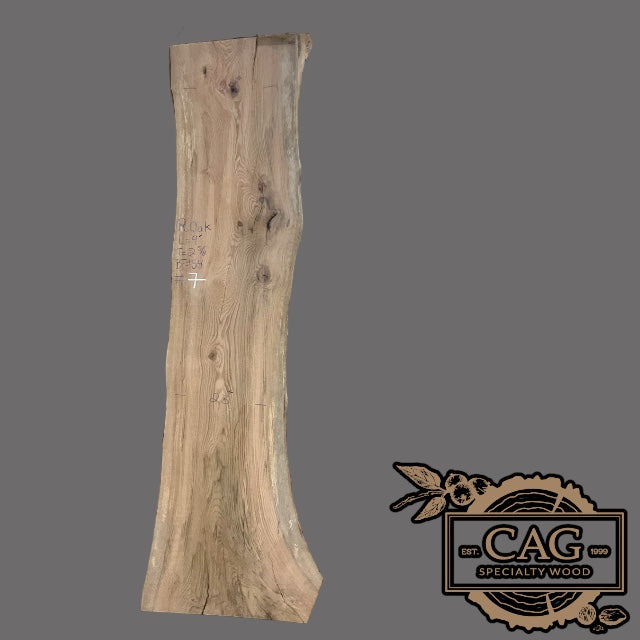
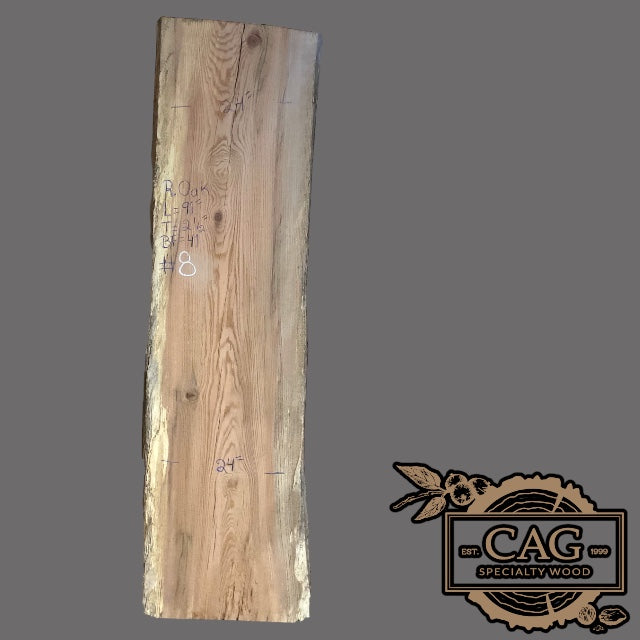
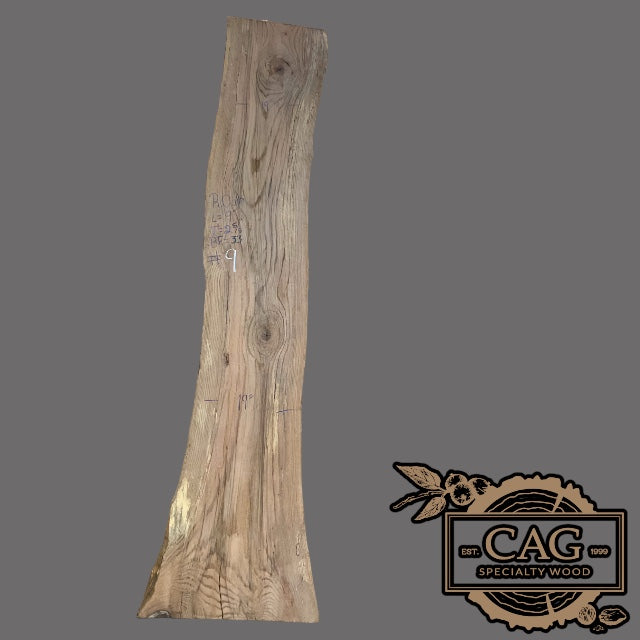
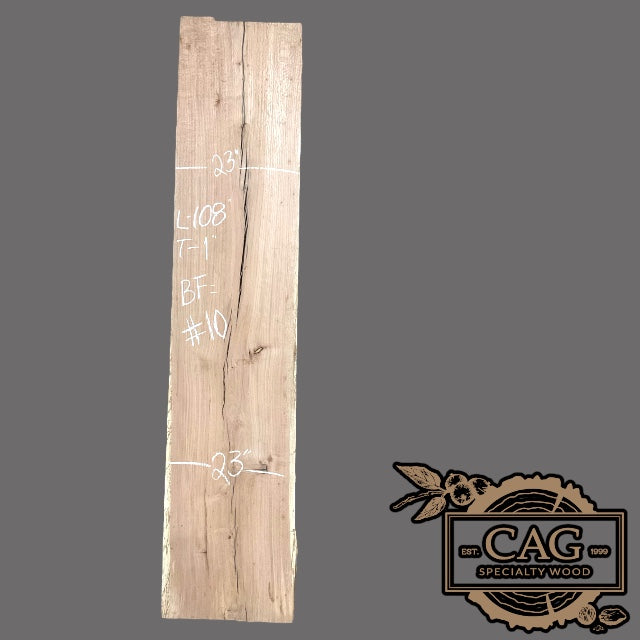
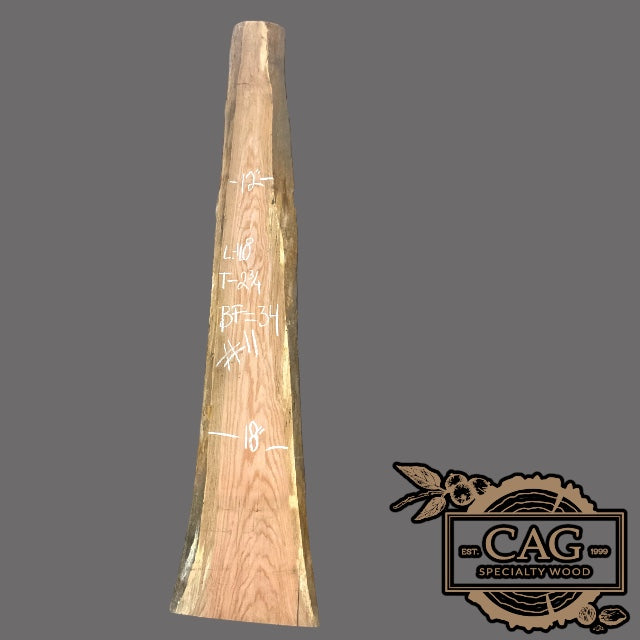
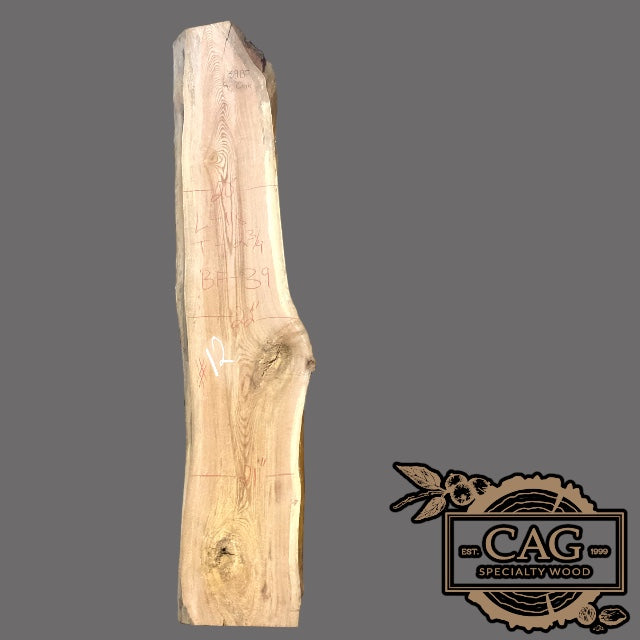
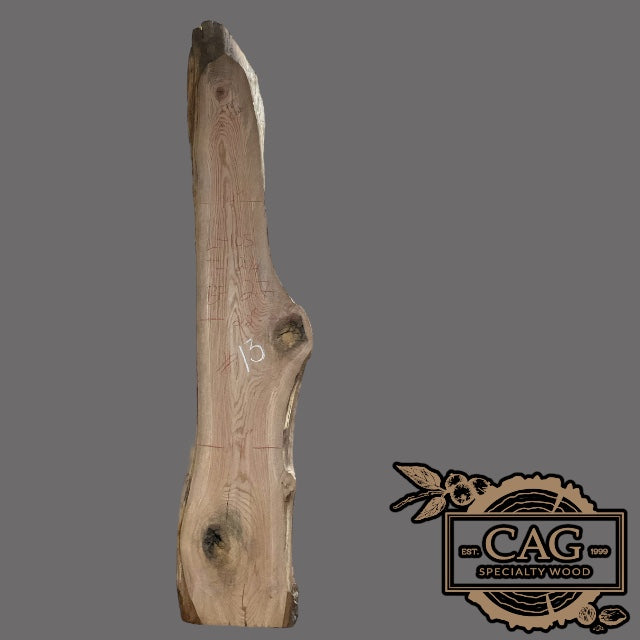
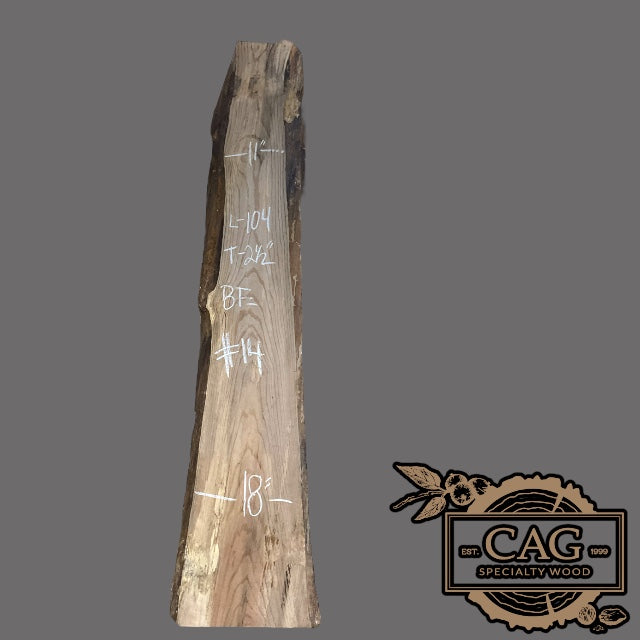
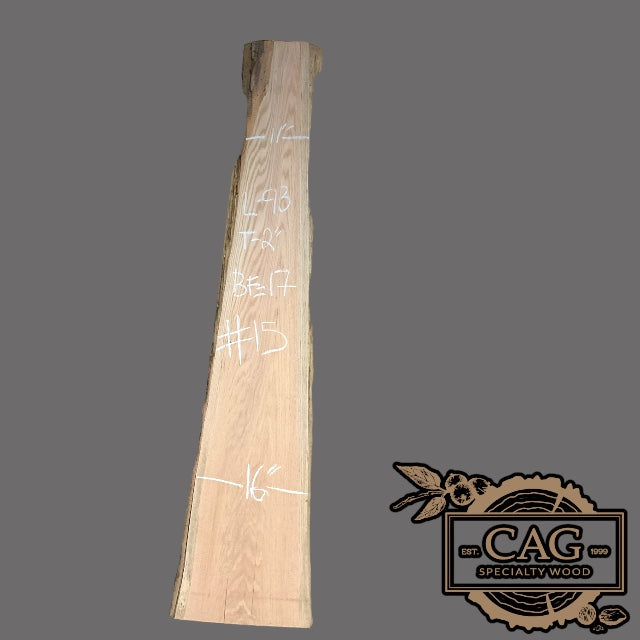
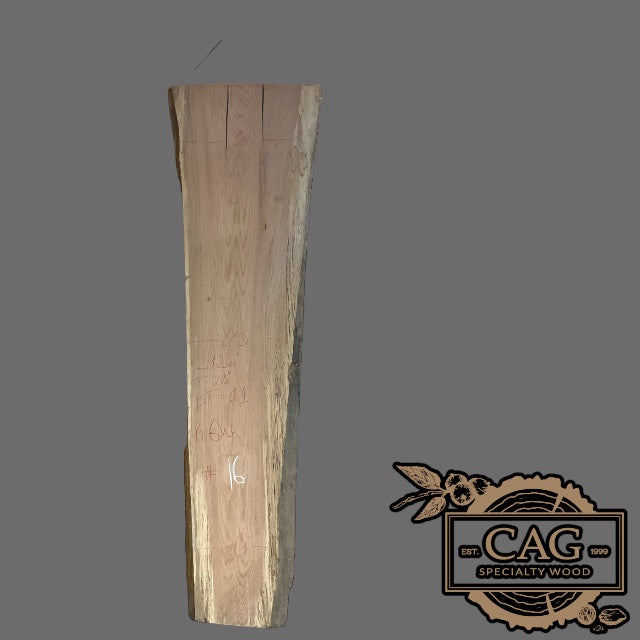
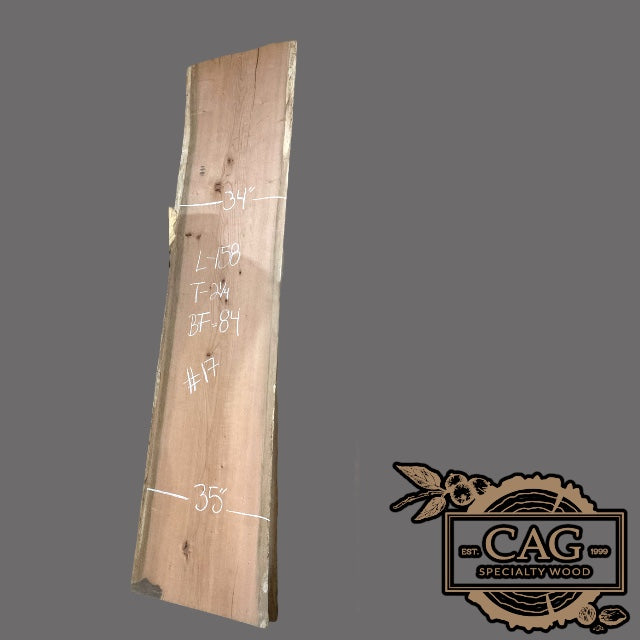
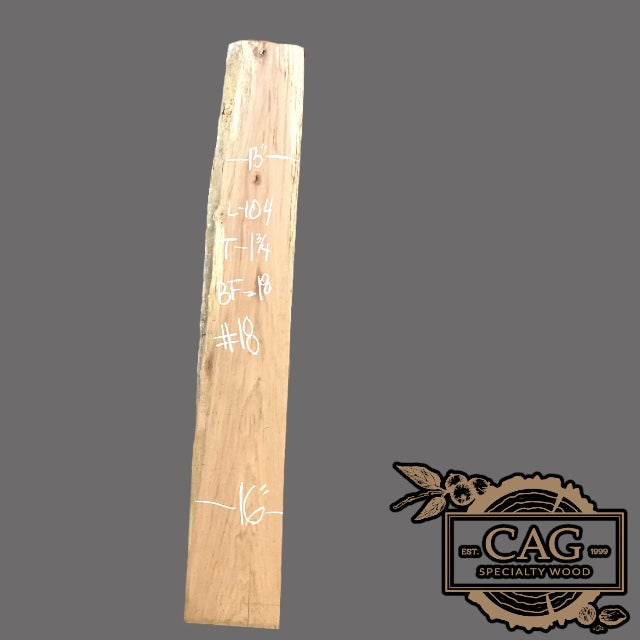
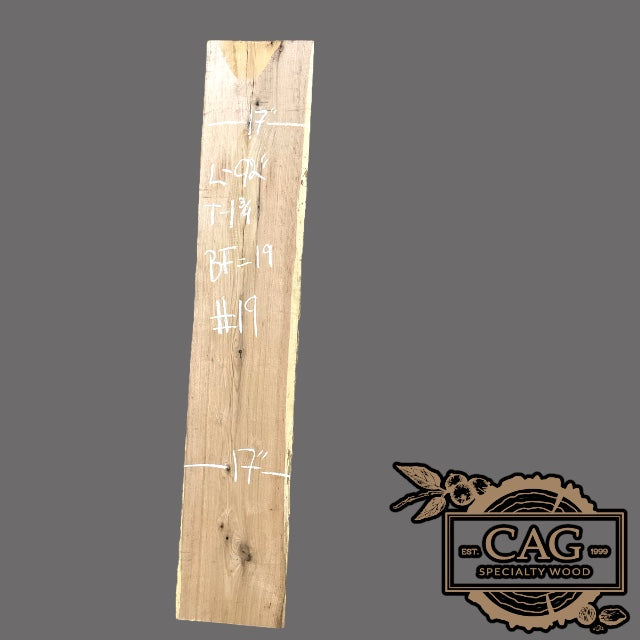
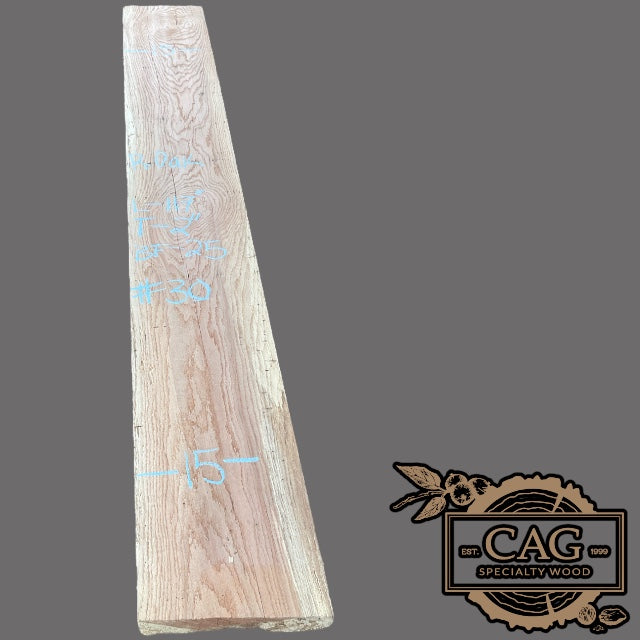
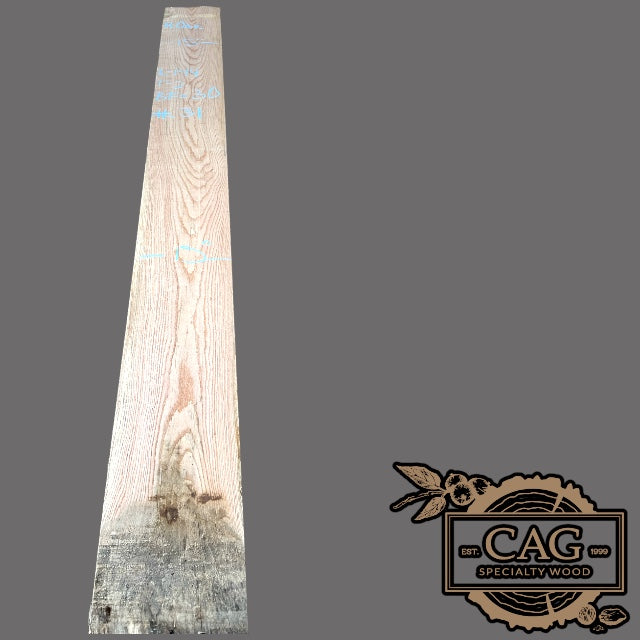
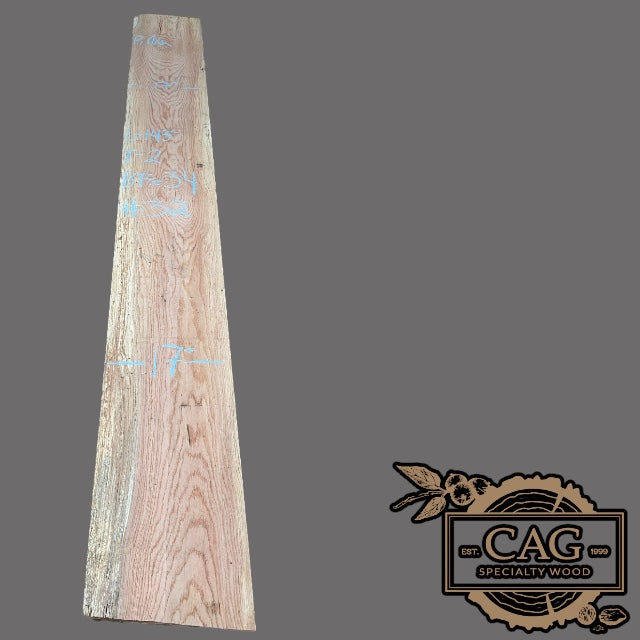
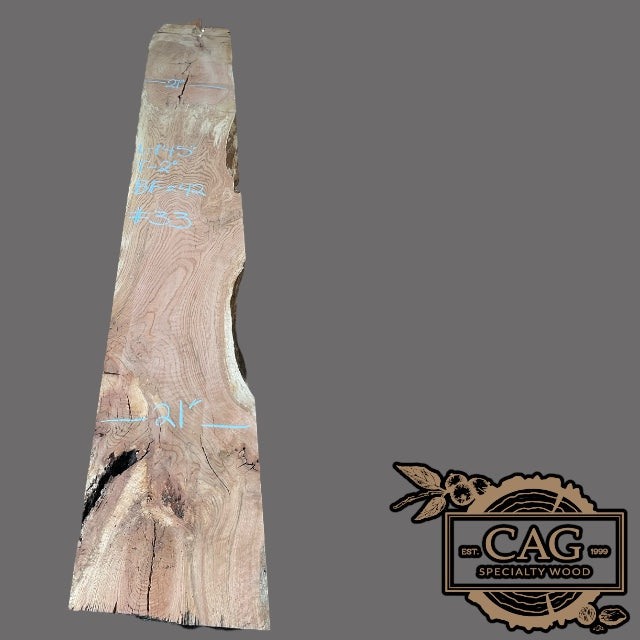
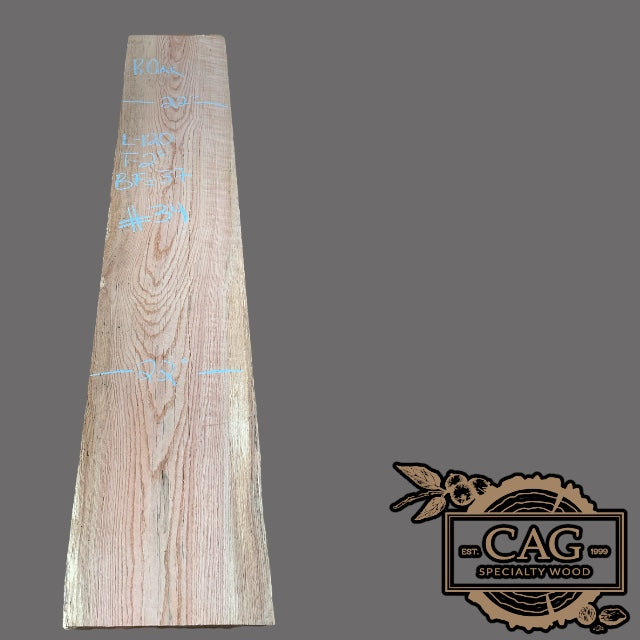
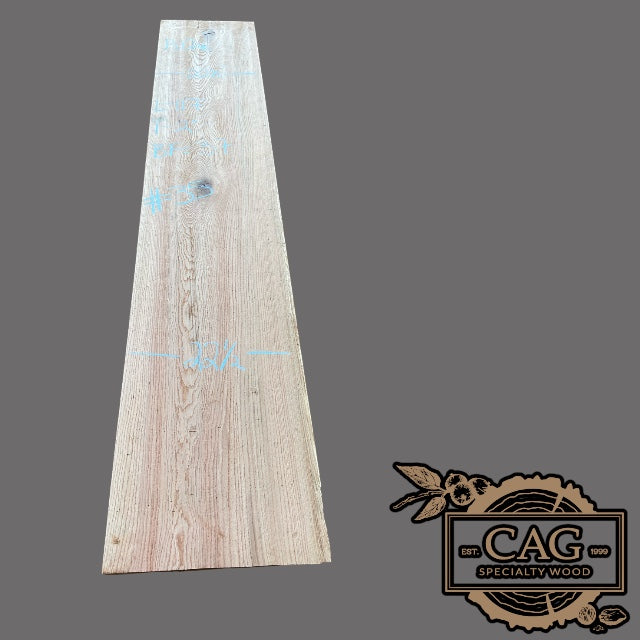
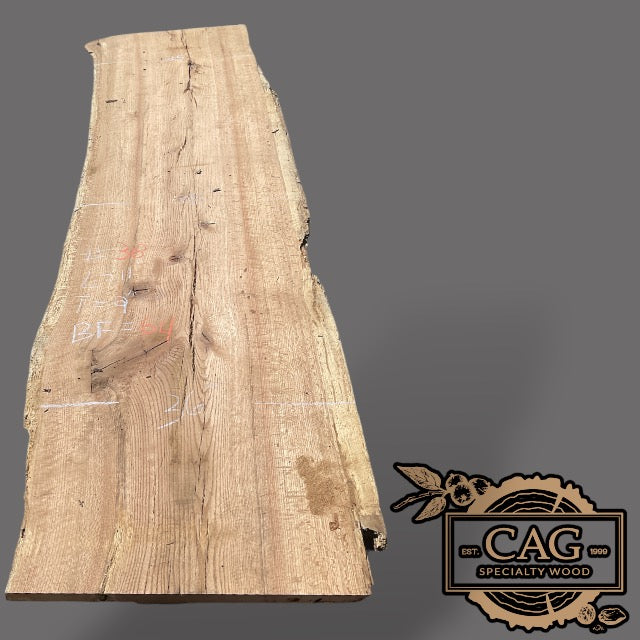
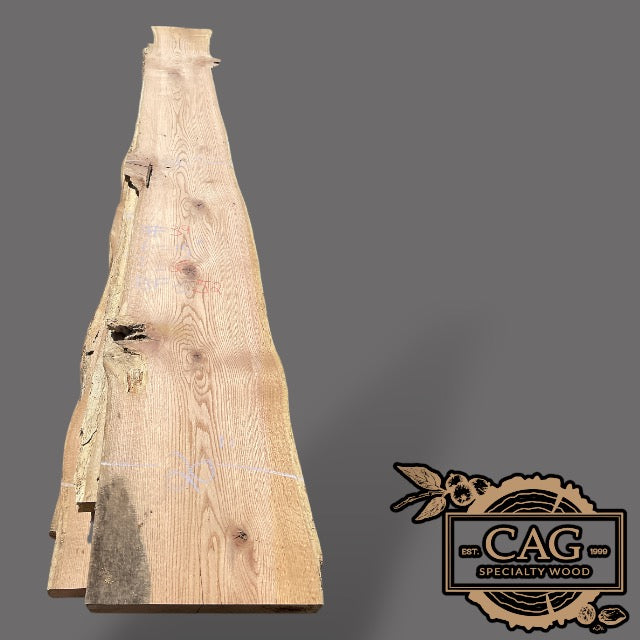
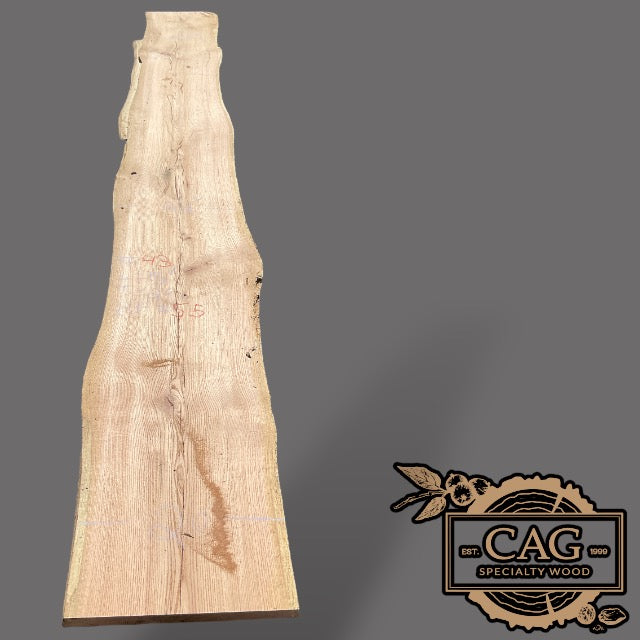
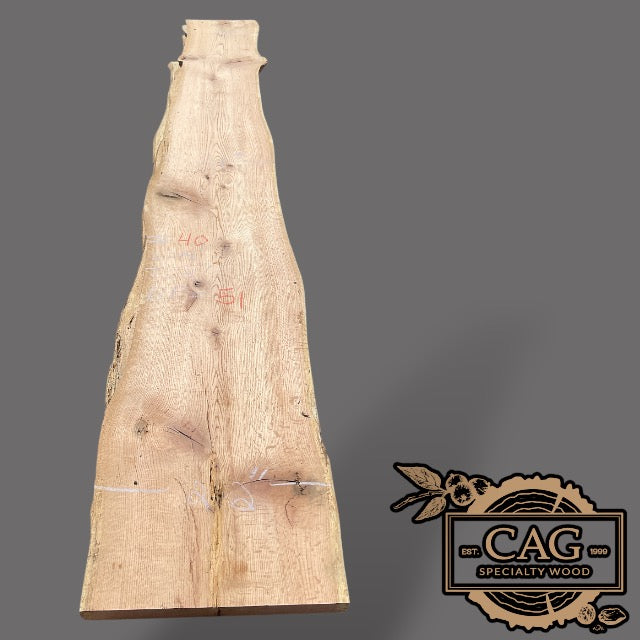
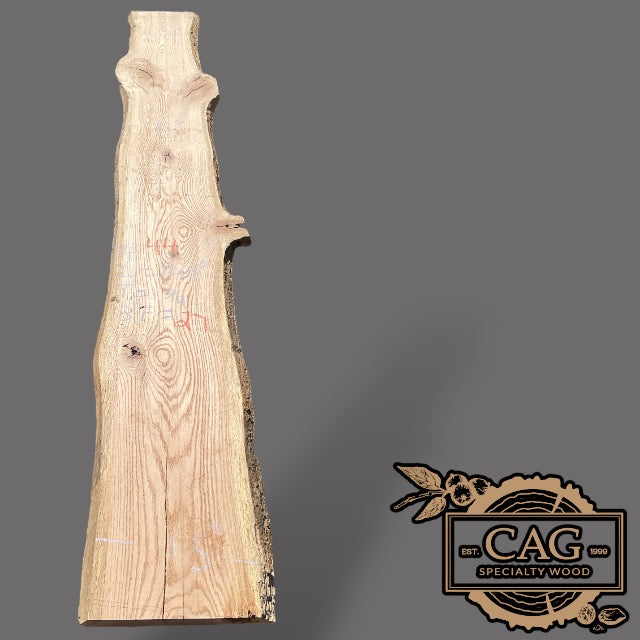
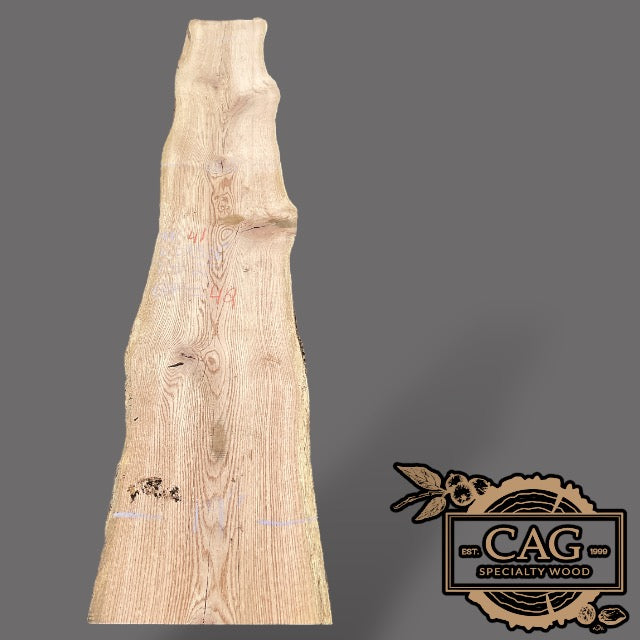
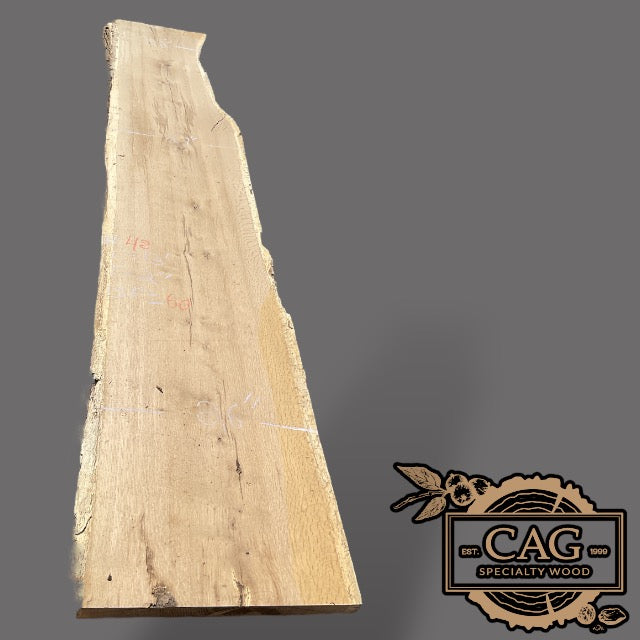
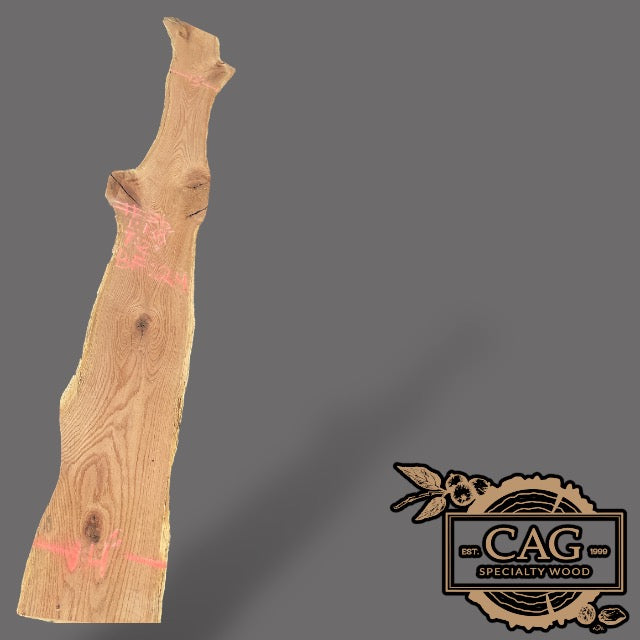
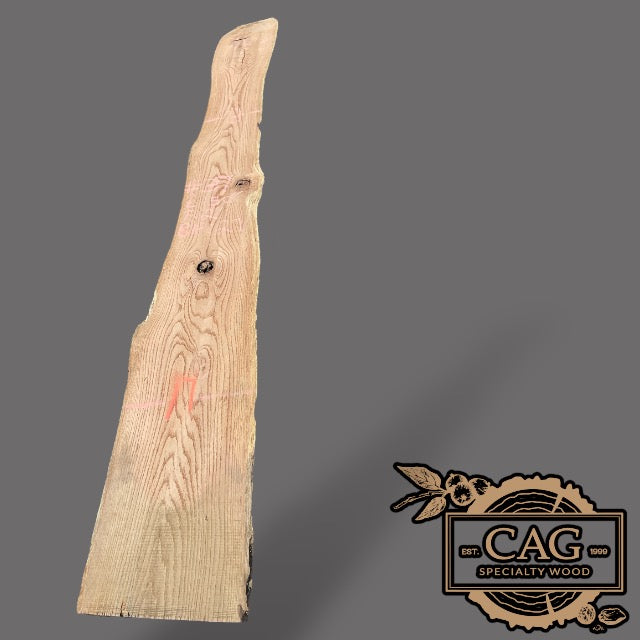
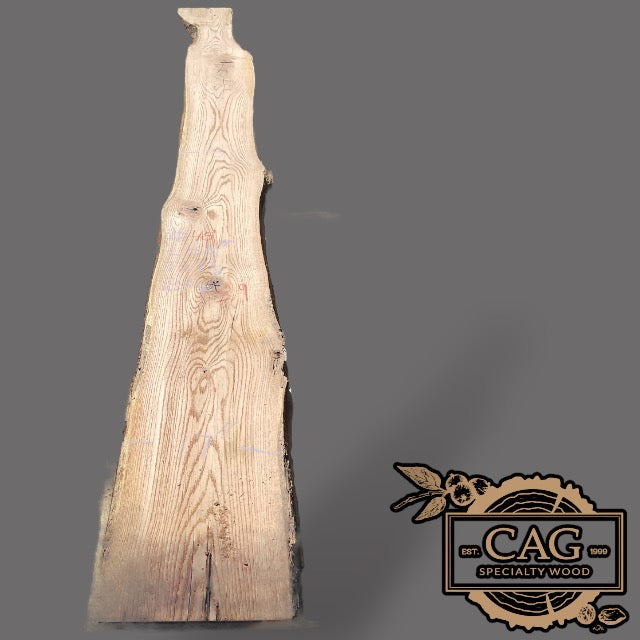
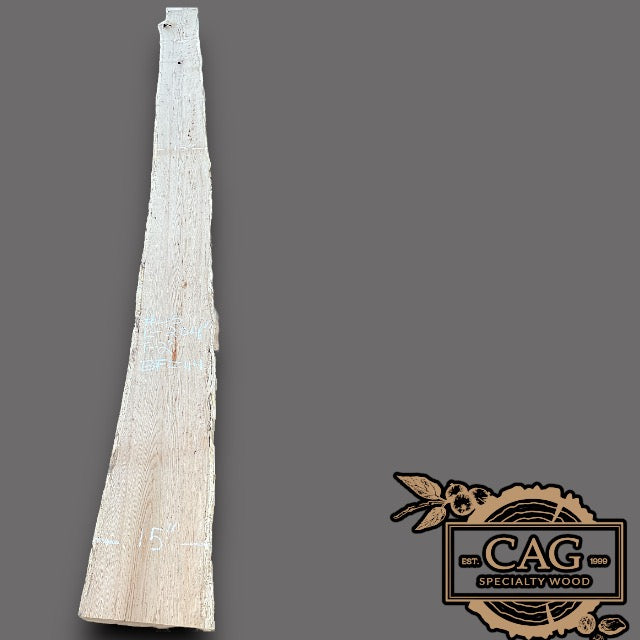
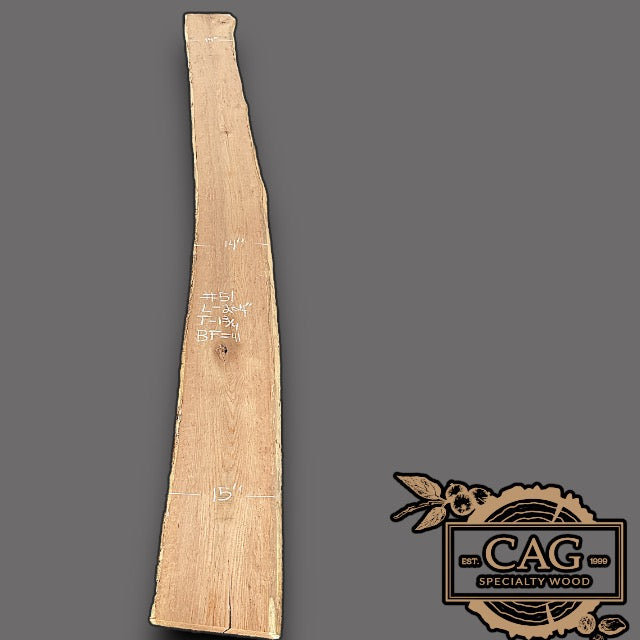
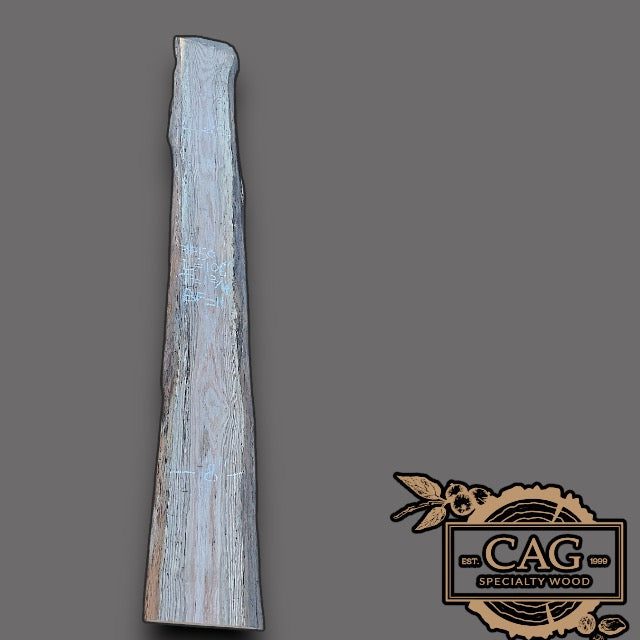
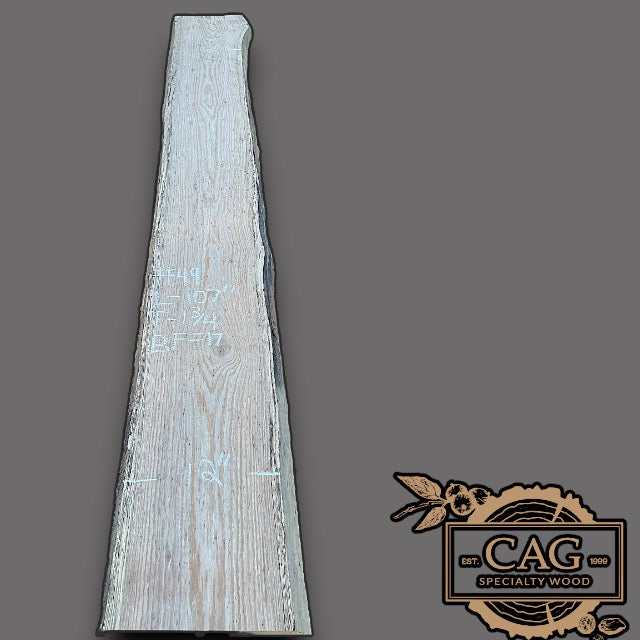
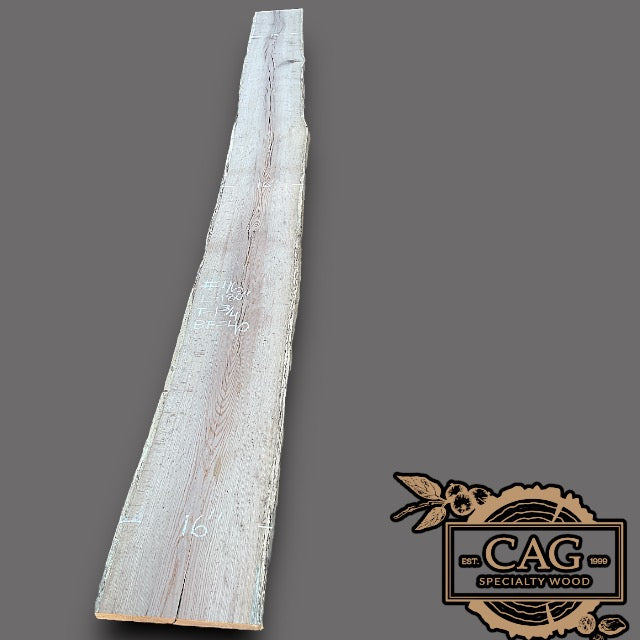
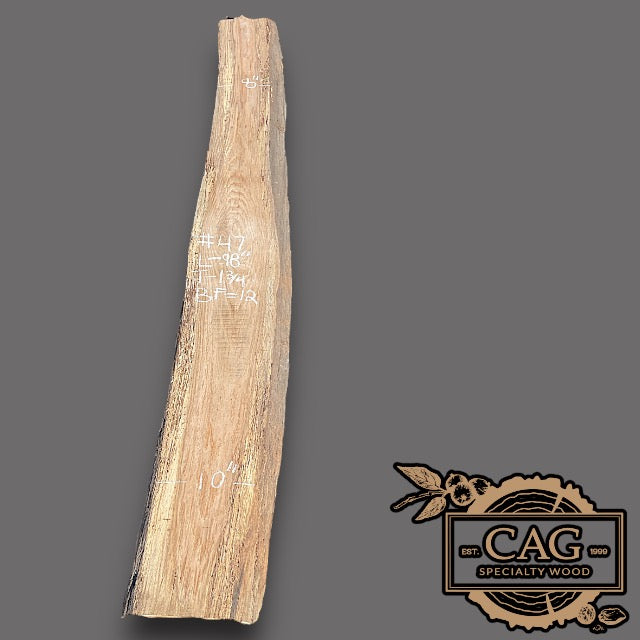
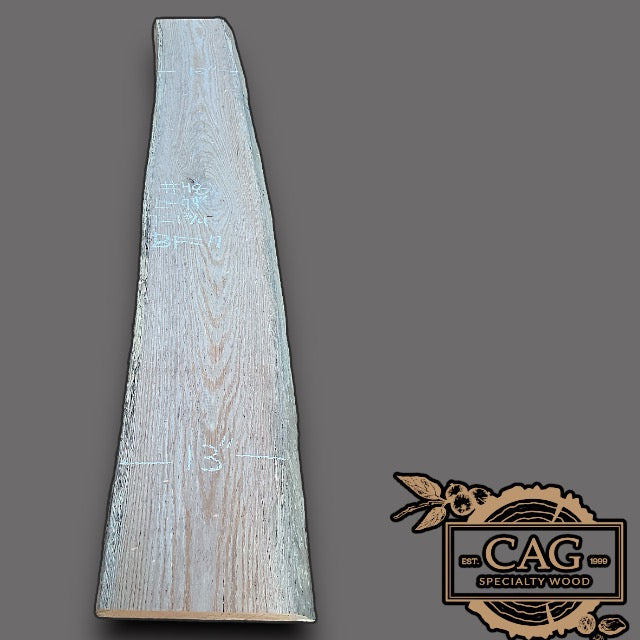
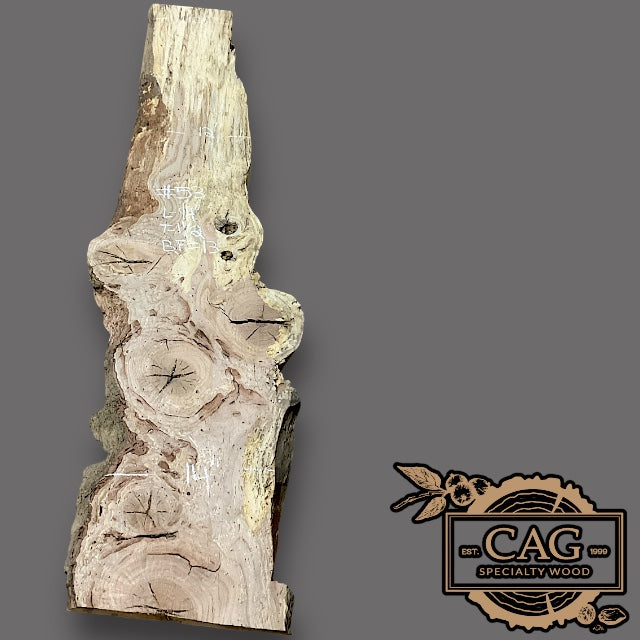
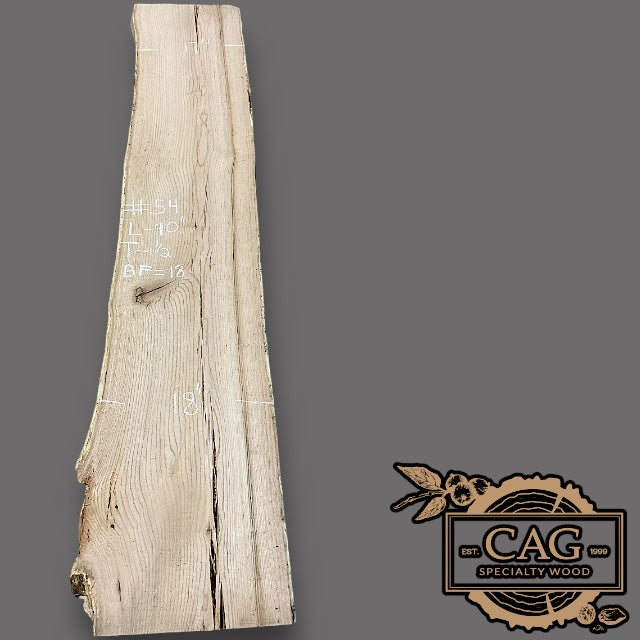
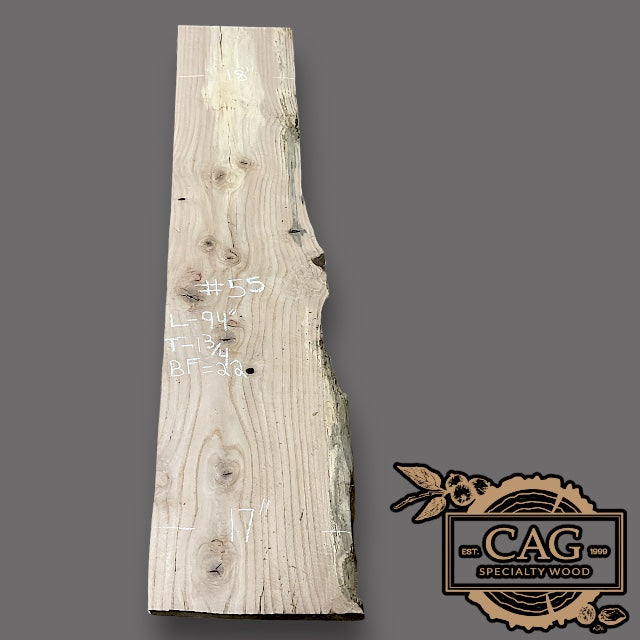
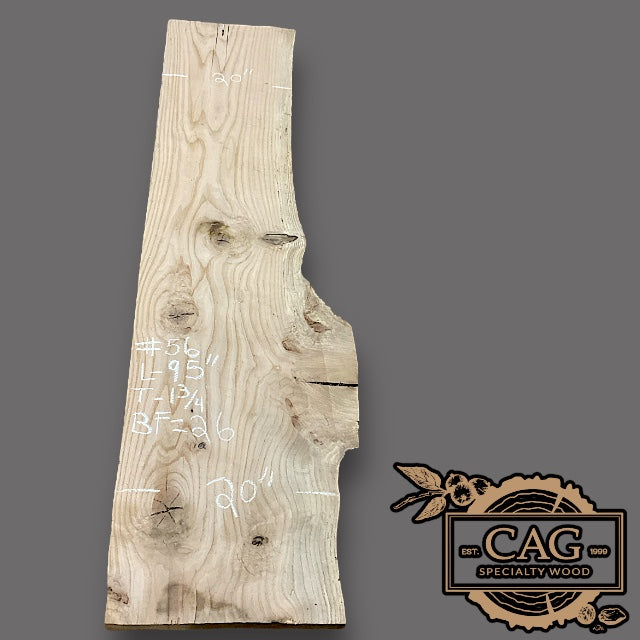
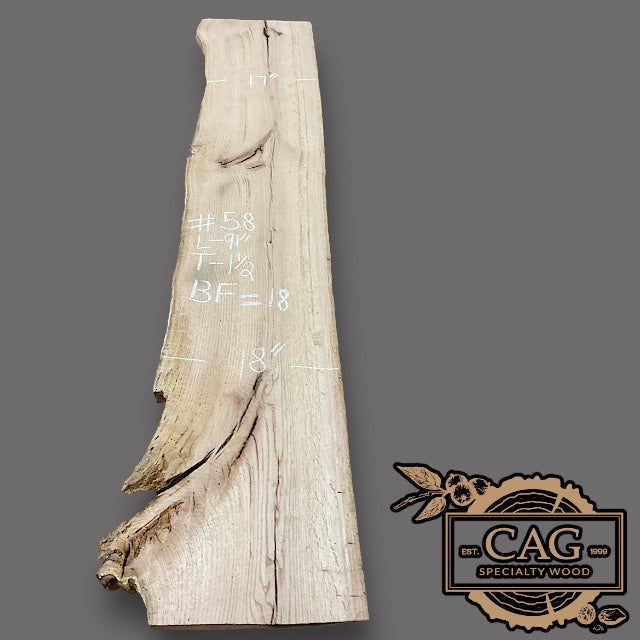
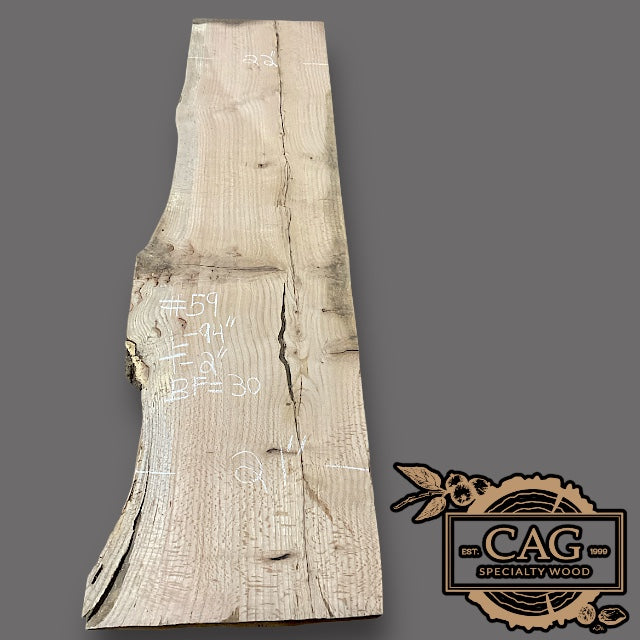
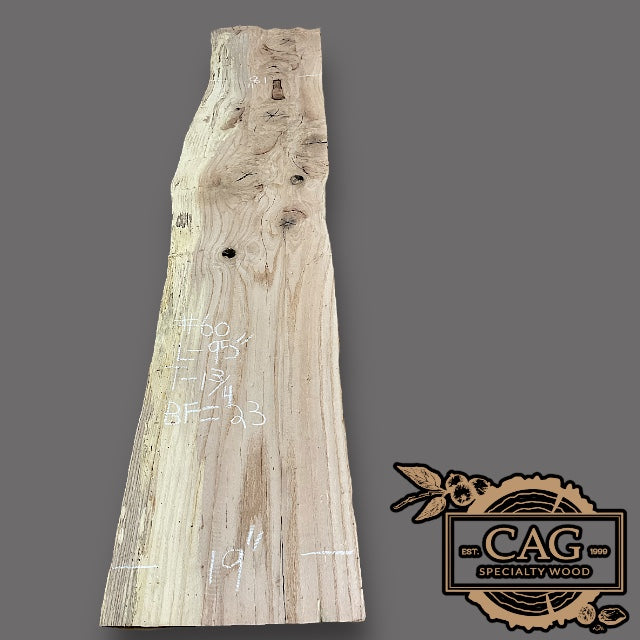
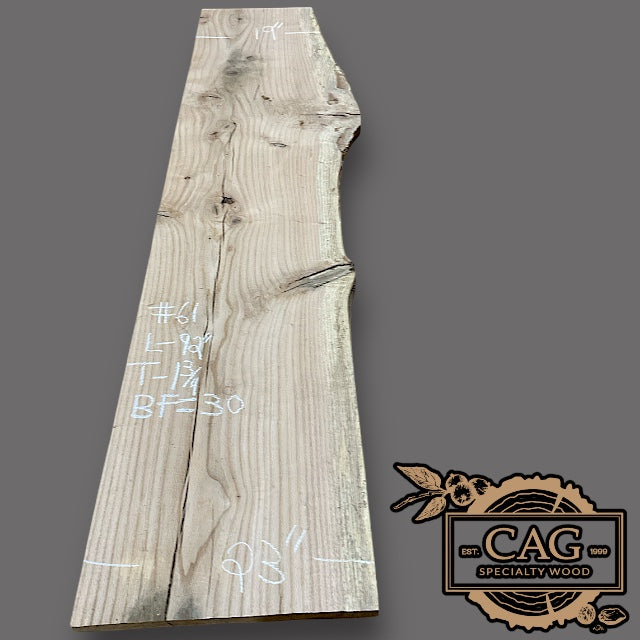
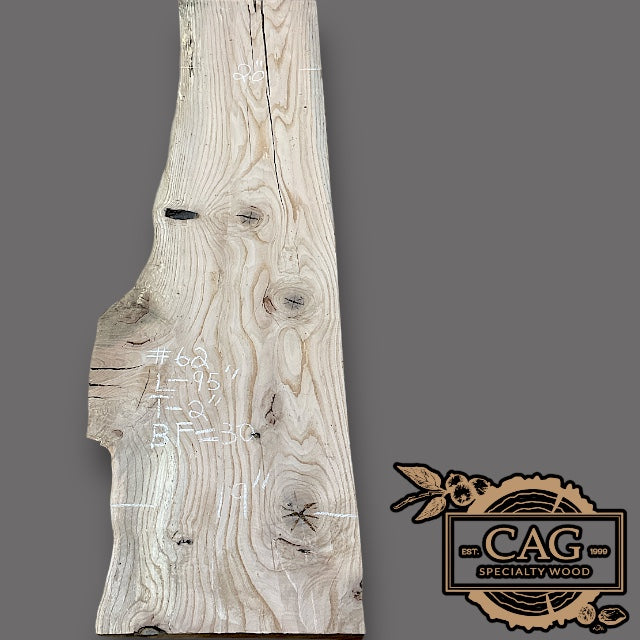
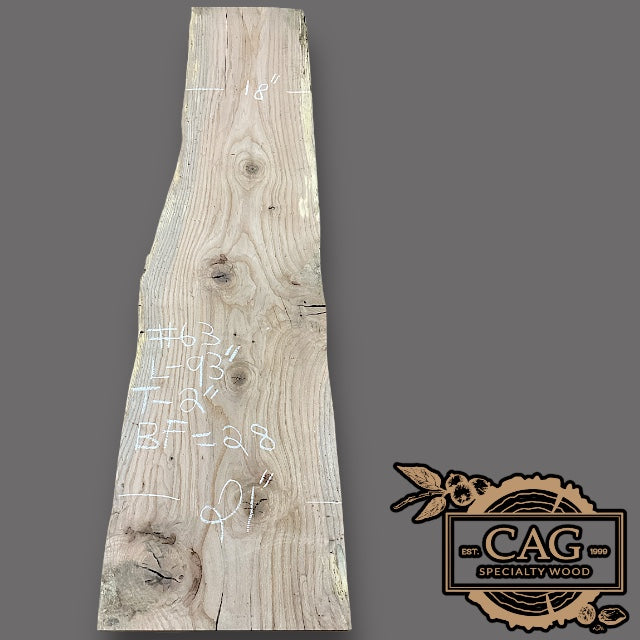
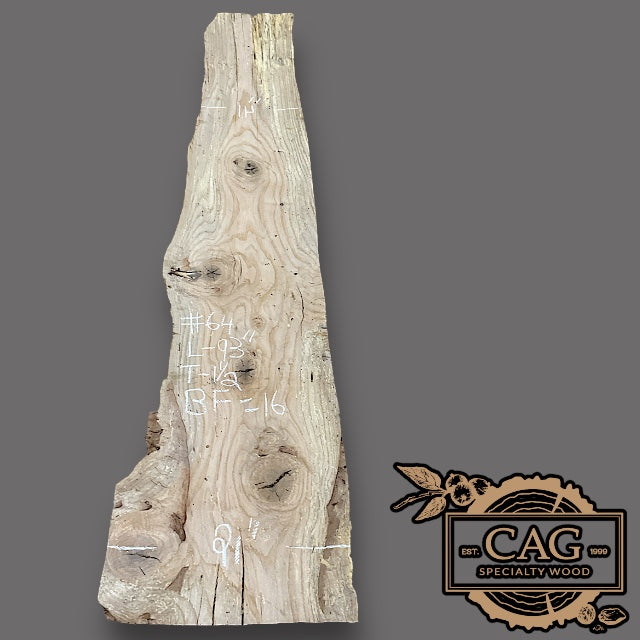
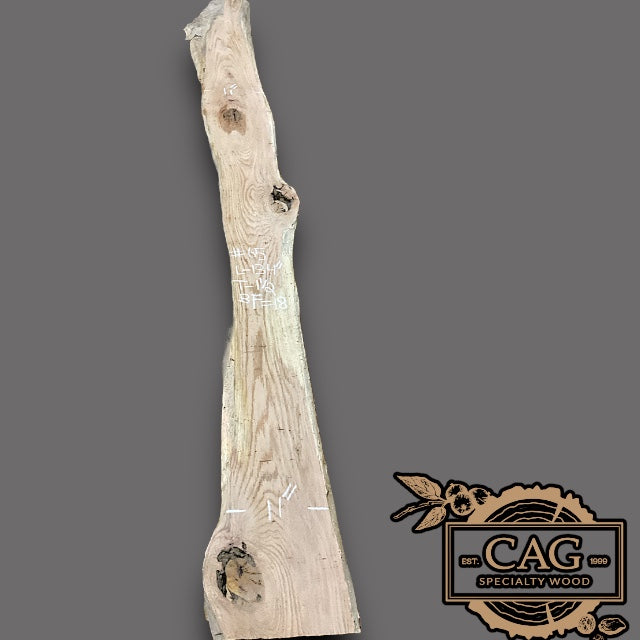
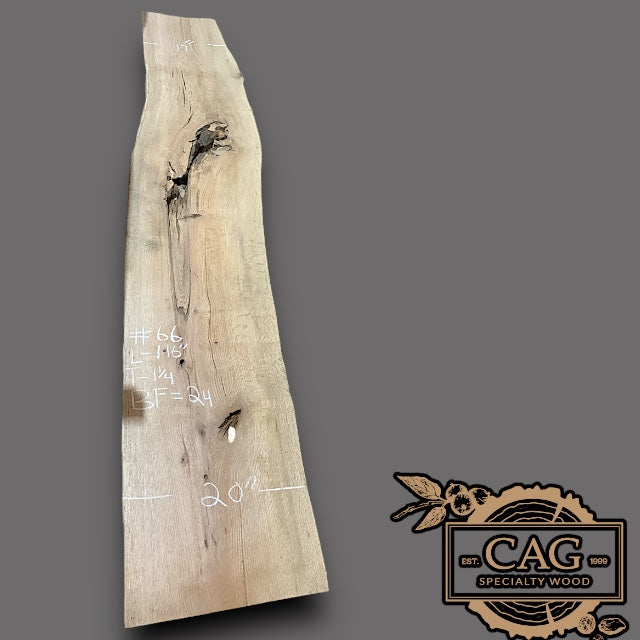
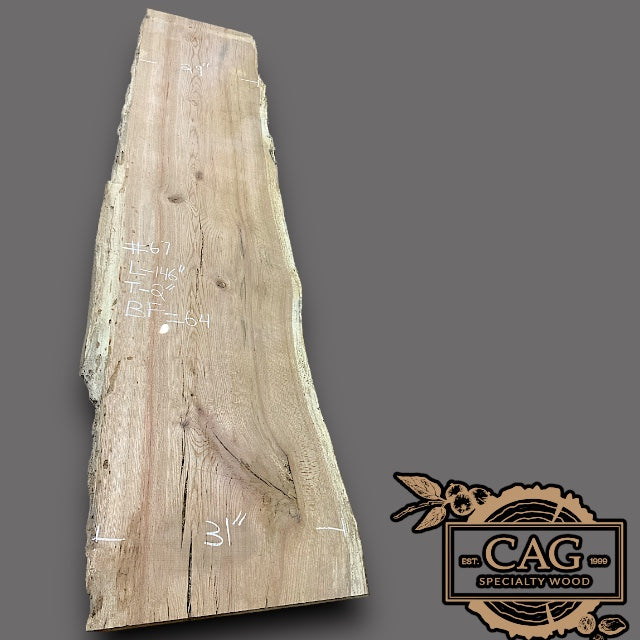
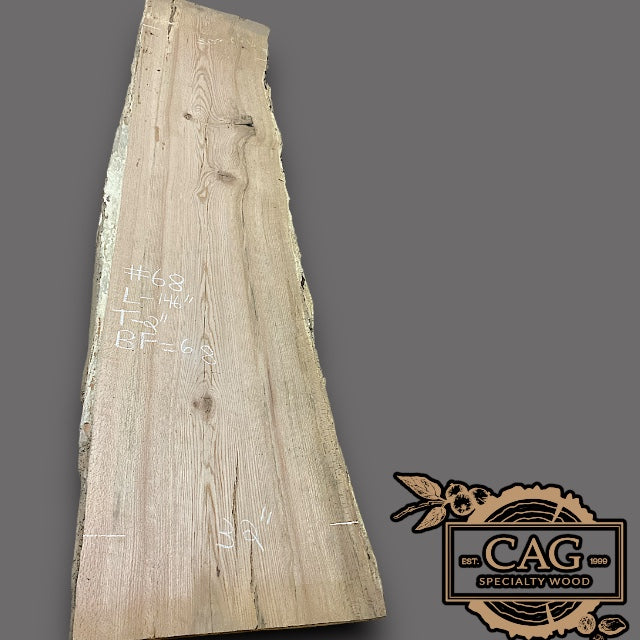
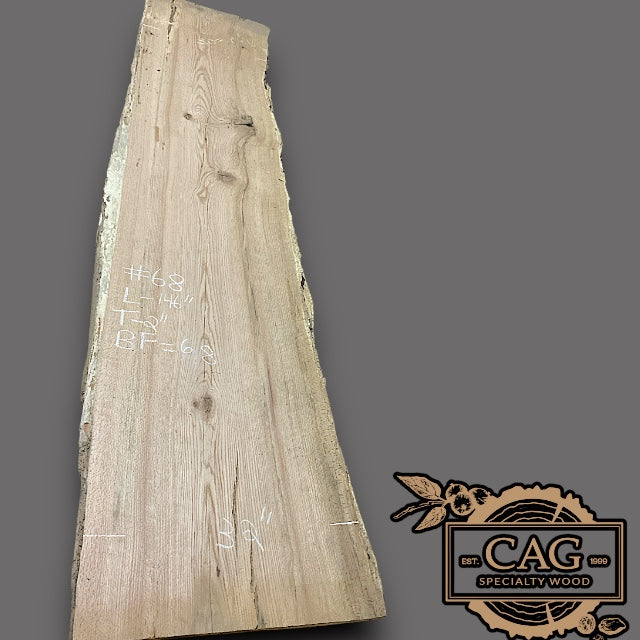
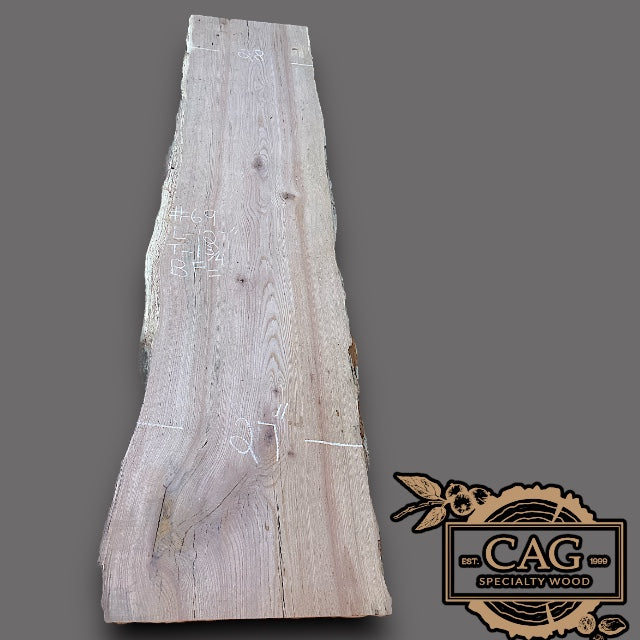
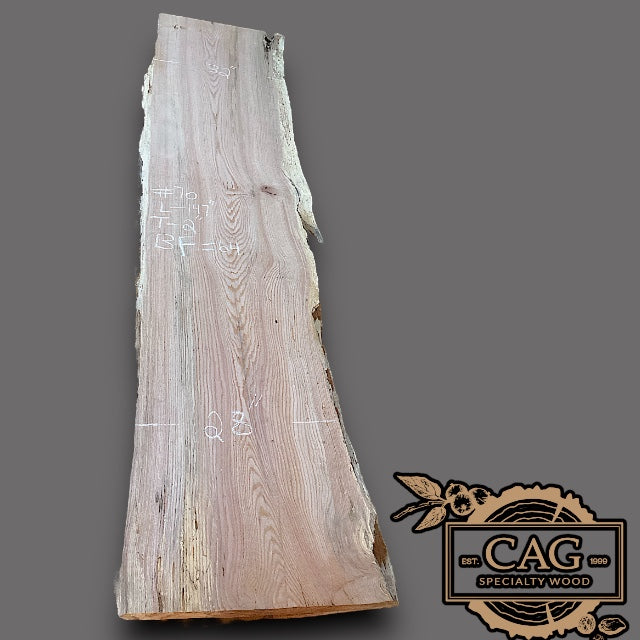
Red Oak Slabs
Red Oak (Quercus falcata) is a deciduous hardwood with 40 species and more than 200 subspecies indigenous to North America, southeastern Canada, Mexico and Central America. It was introduced to Europe in the 18th century and continues to flourish there. Color ranges from a pale tan to a medium brown with a reddish hue. The grain is open, and the texture of the wood is coarse and porous with a dull luster. Grain patterns are determined by machining; plainsawn lumber has a grain pattern with a plumed or flared appearance, riftsawn planks are tightly grained, and quartersawn planks have a flaked pattern, also known as tiger rays or butterflies.
Northern red oak is the species most noted for adaptability. It is a hardy species that flourishes in many different kinds of soils and environments, making it one of the most readily available hardwoods on the market. The northern red oak tree grows fairly quickly to an average size of 115-140 feet in height and up to 4 feet in diameter. The grain pattern of the northern red oak is distinctive, with shiny, silvery waves, curls, and stripes. Southern red oak is softer and less durable, and tends to be lighter in color with less distinctive grain marking. It is an adaptable type of tree, noted for faster growth. It is easy to work with and quite durable when properly dried, but is more commonly used for furniture, while northern red oak is more commonly used for flooring.
The northern red oak grows straight and tall, to 90 ft, exceptionally to 140 ft tall, with a trunk of up to 20–40 in. diameter. Open-grown trees do not get so tall, but can develop a stouter trunk, up to 6 ft in diameter. It has stout branches growing at right angles to the stem, forming a narrow round-topped head. It grows rapidly and is tolerant of many soils and varied situations, although it prefers the glacial drift and well-drained borders of streams. It is frequently a part of the canopy in an oak-heath forest, but generally not as important as some other oaks.
|
Botanical Name |
Quercus falcata |
| Origin | Southeastern United States |
| Janka Hardness | 1060 lbf |
| Average Dried Weight | 42 lbs/ft3 |
| Workability | Easy to glue, takes stains and finishes very well. |
| Related Species |
Black Oak (Quercus velutina) Bur Oak (Quercus macrocarpa) California Black Oak (Quercus kelloggii) Cherrybark Oak (Quercus pagoda) Chestnut Oak (Quercus prinus) English Oak (Quercus robur) Holm Oak (Quercus ilex) Japanese Oak (Quercus mongolica) Laurel Oak (Quercus laurifolia) Live Oak (Quercus virginiana) Oregon White Oak (Quercus garryana) Overcup Oak (Quercus lyrata) Pin Oak (Quercus palustris) Post Oak (Quercus stellata) Red Oak (Quercus rubra) Scarlet Oak (Quercus coccinea) Sessile Oak (Quercus petraea) Shumard Oak (Quercus shumardii) Swamp Chestnut Oak (Quercus michauxii) Swamp White Oak (Quercus bicolor) Turkey Oak (Quercus cerris) Water Oak (Quercus nigra) White Oak (Quercus alba) Willow Oak (Quercus phellos) |
Red Oak Slabs
Red Oak Slab 1B - 84"x37"x2"
4050 Old Cornelia Hwy
Gainesville GA 30507
United States
Wood Calculator Section
Need Help Figuring out how much you need ?
One Board foot = 144 Cubic Inches
Example: If you need a piece of wood 12 inches wide, 1 inch thick and 24 inches long, that is equal to 2 board feet.
12 inches x 1 inch x 24 inches = 288 inches. 288/ 144 = 2 board feet
